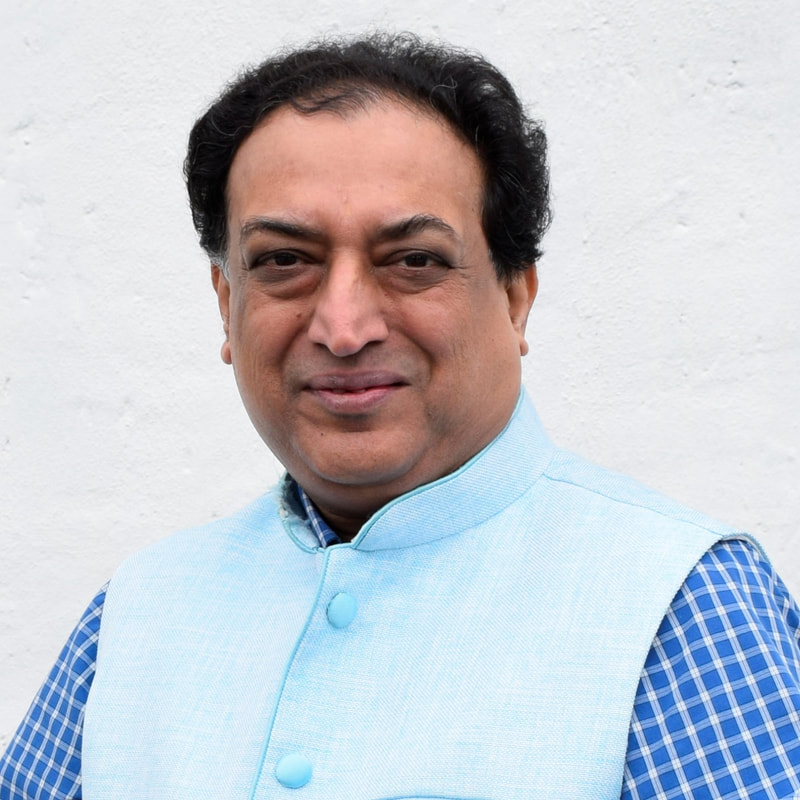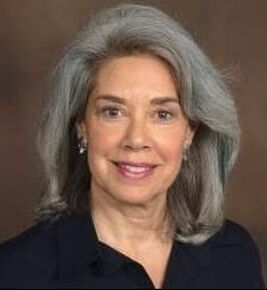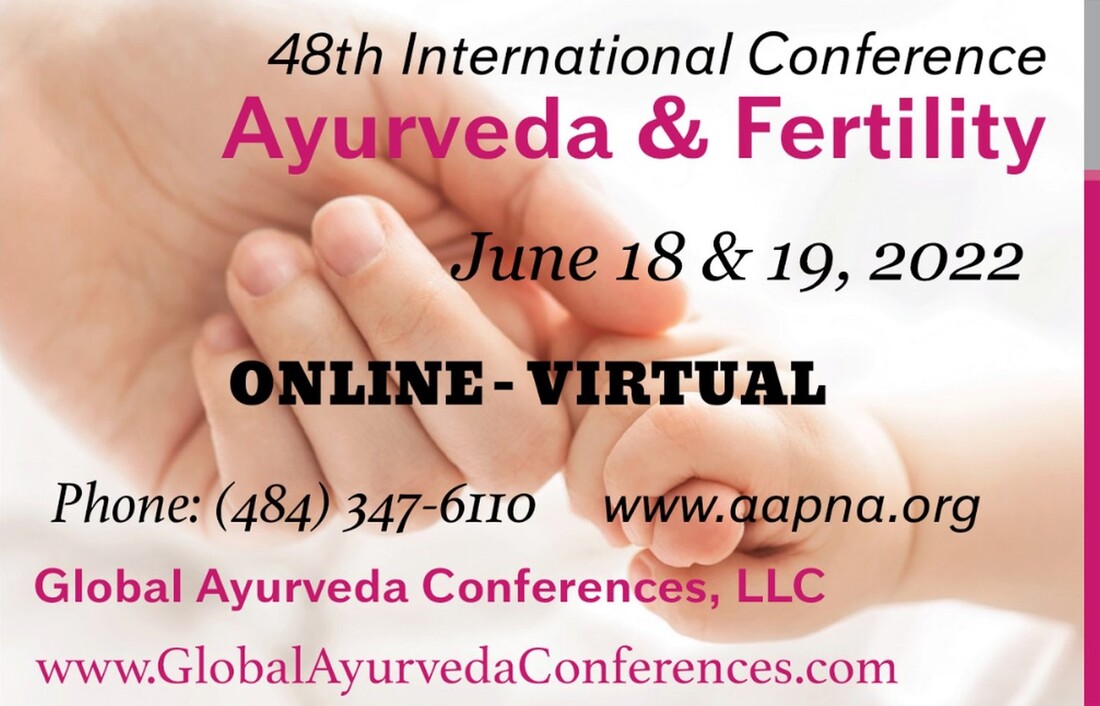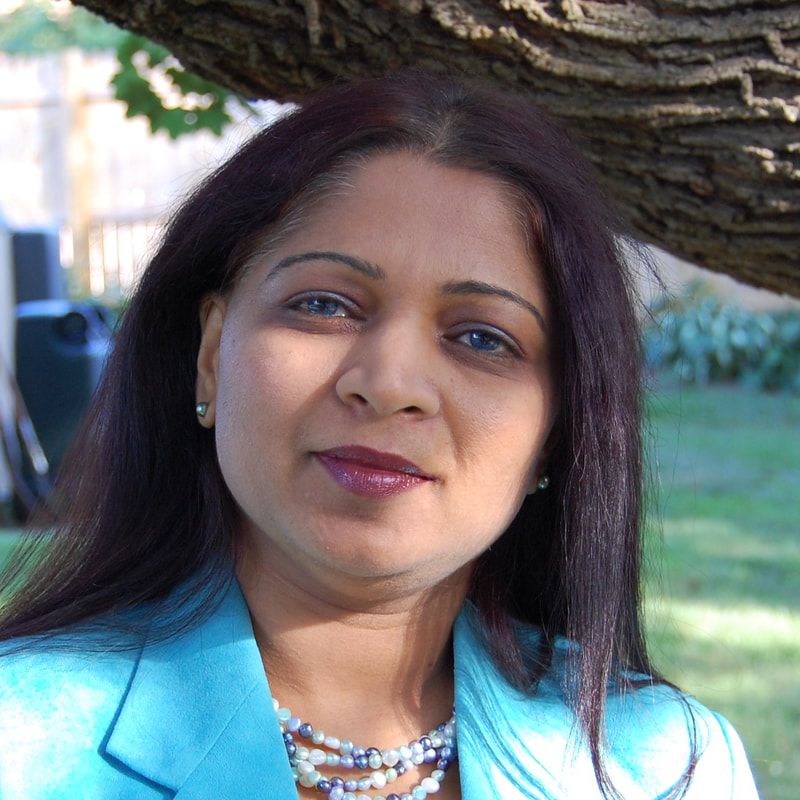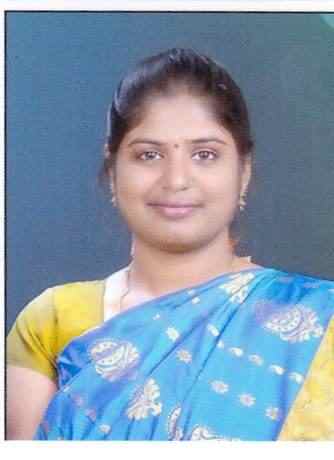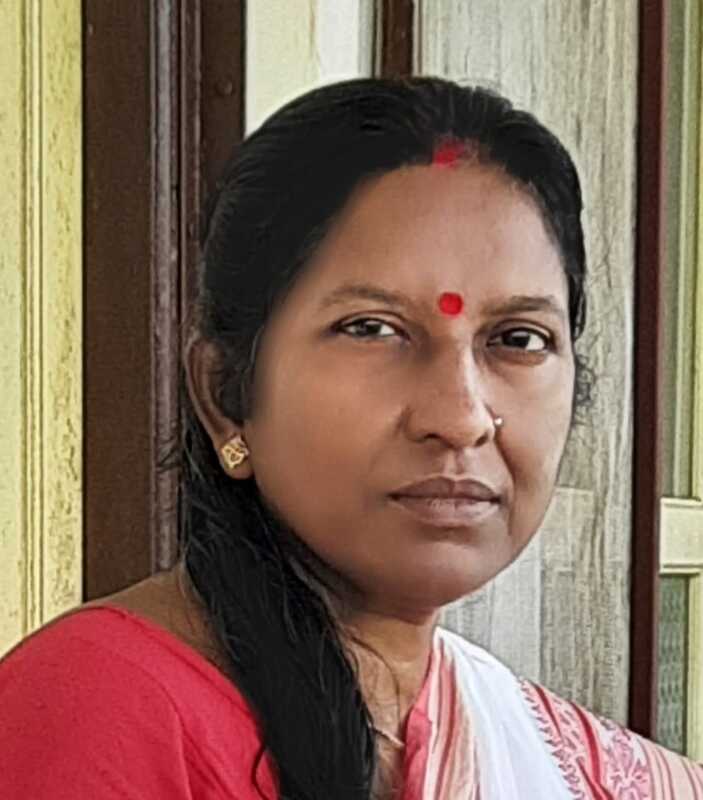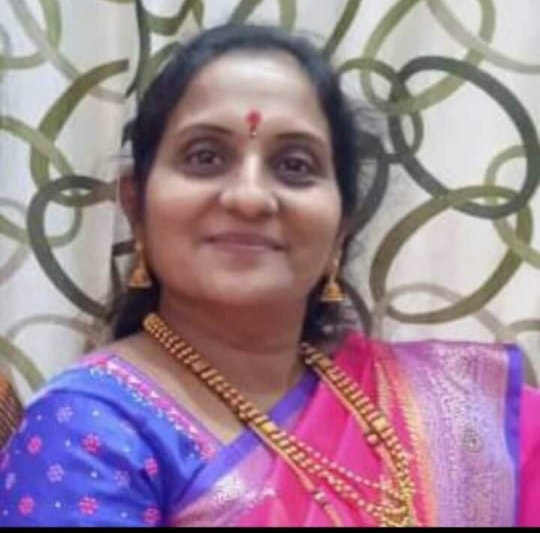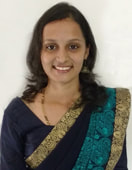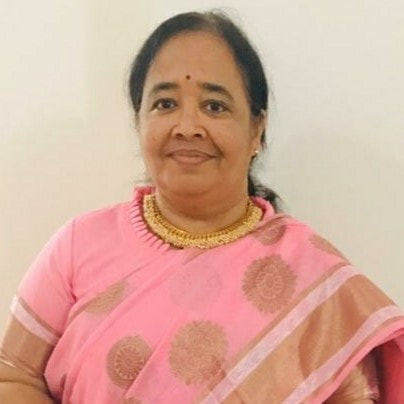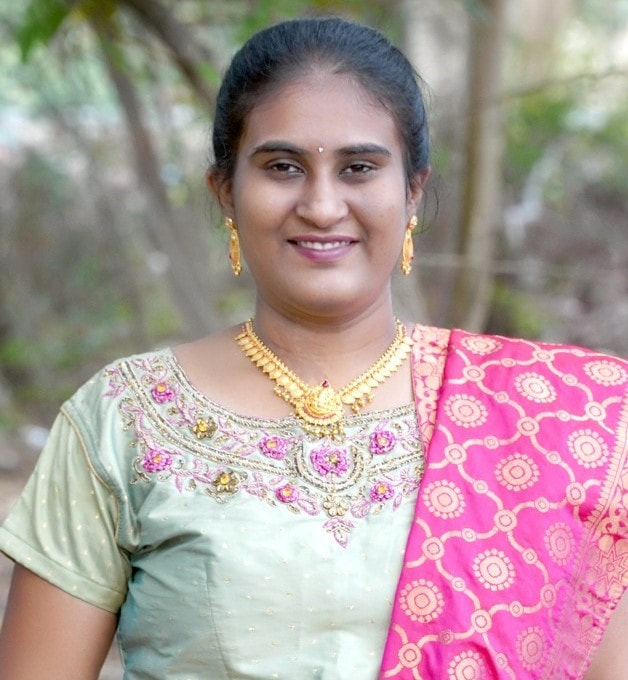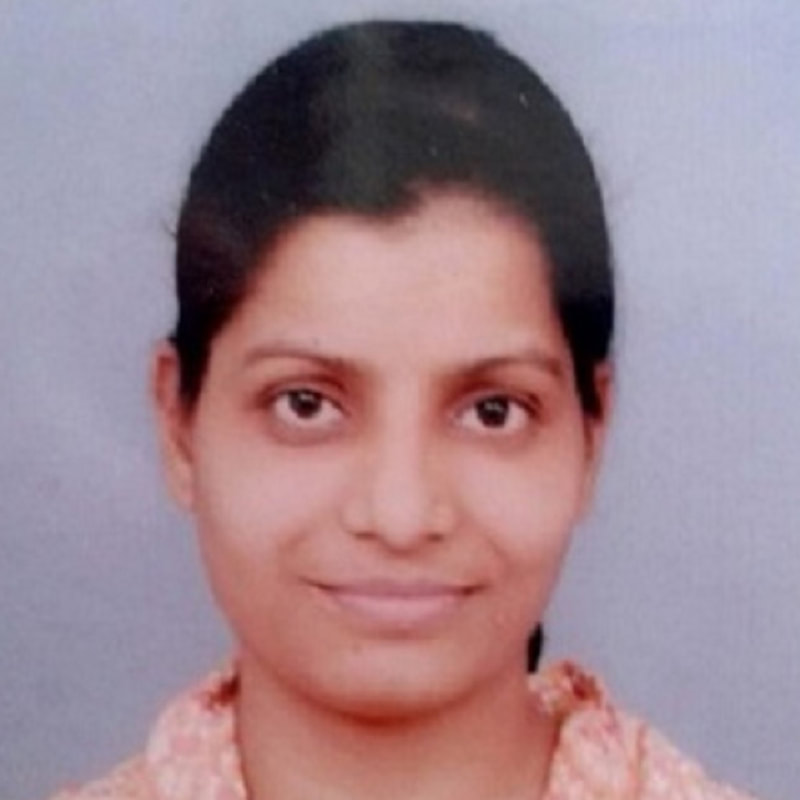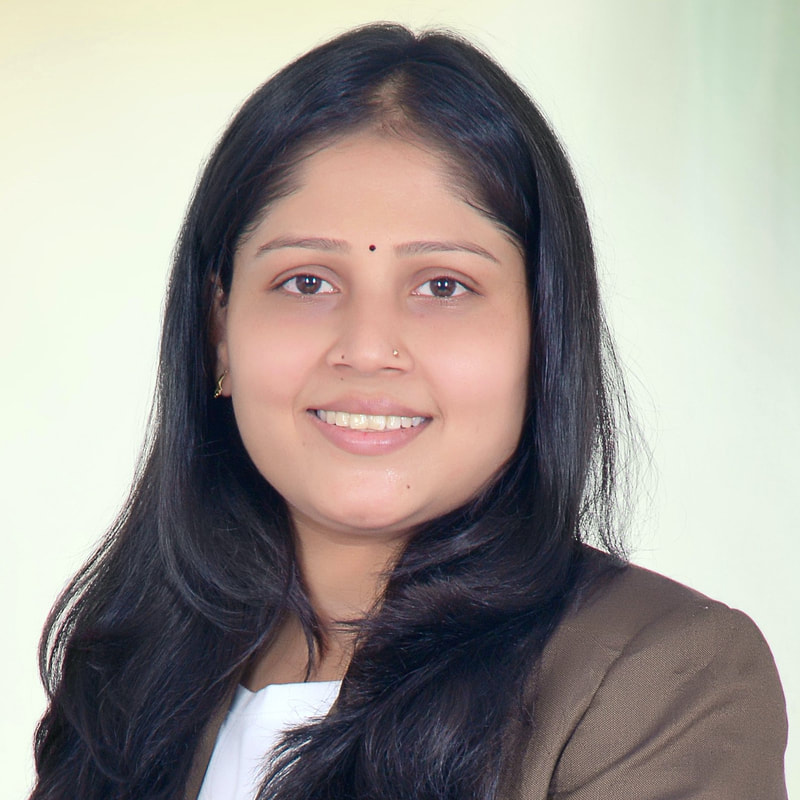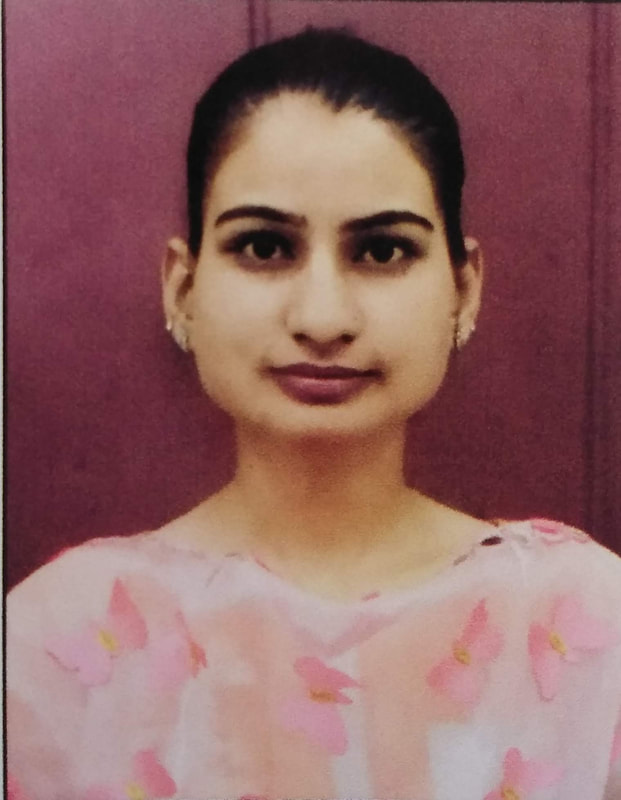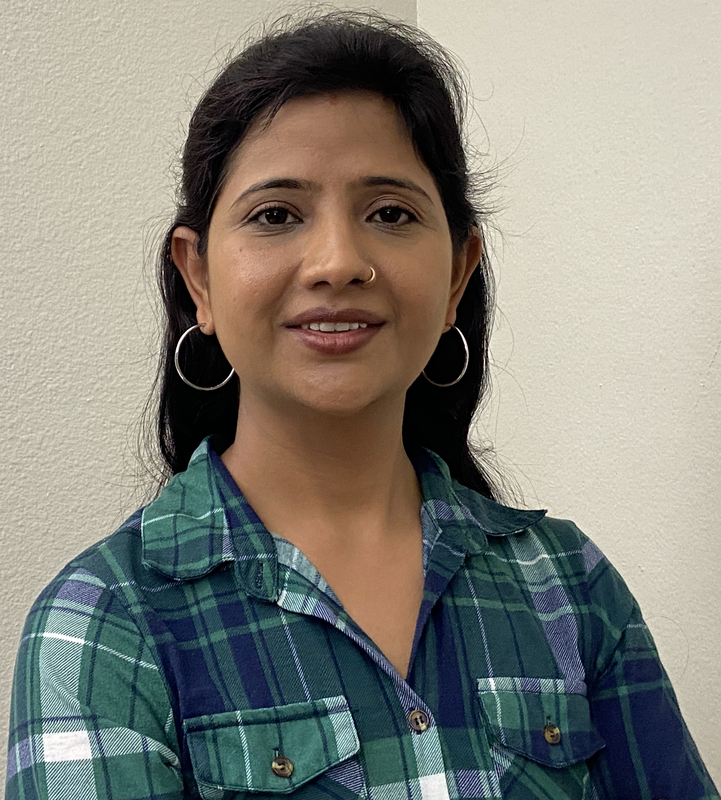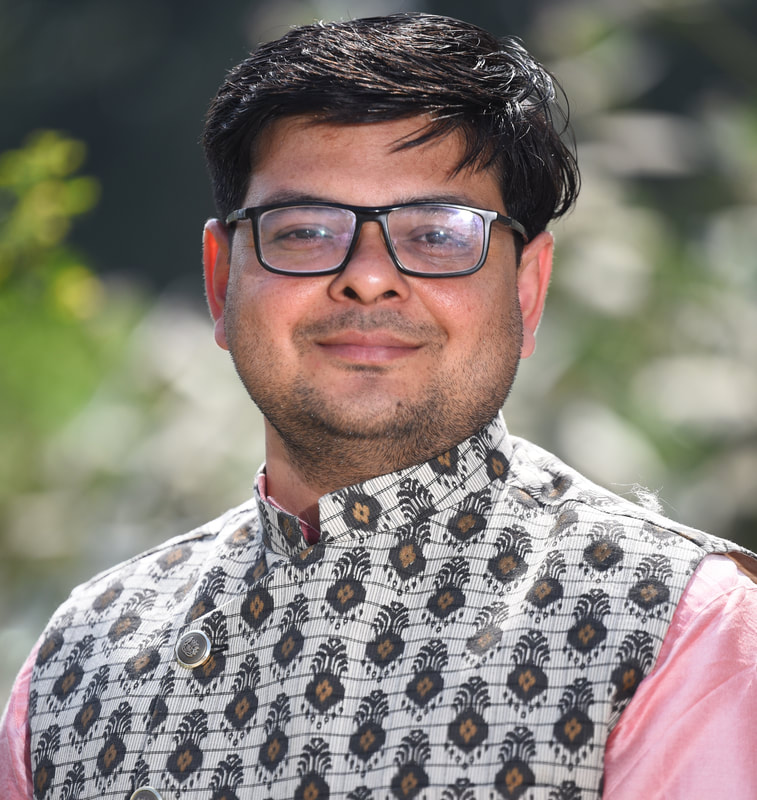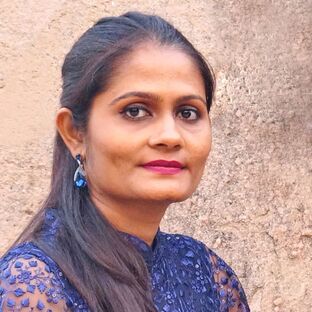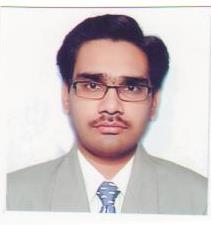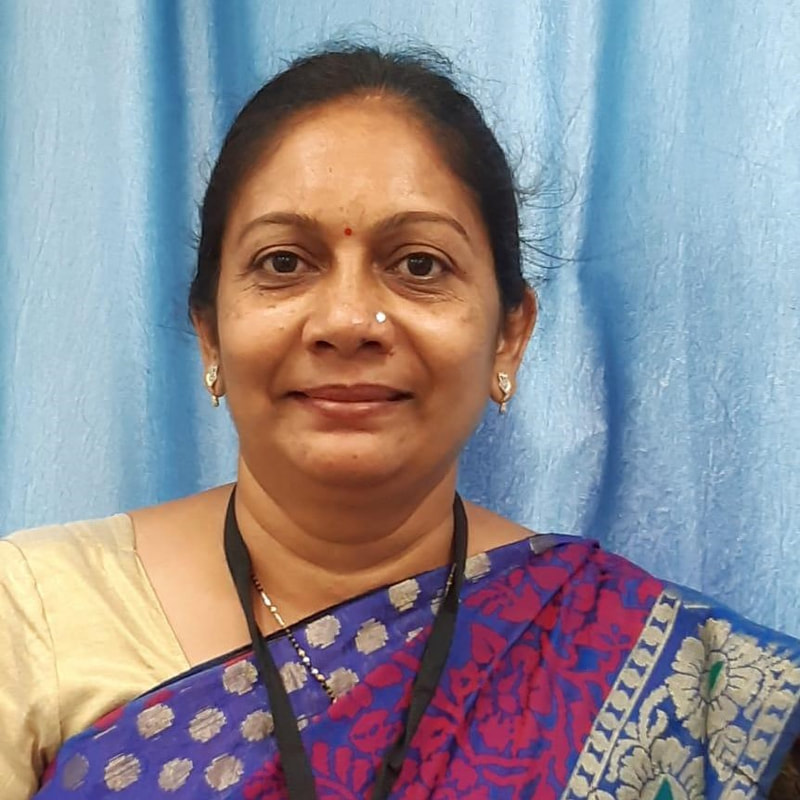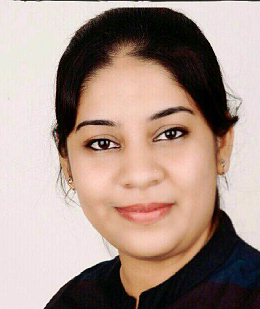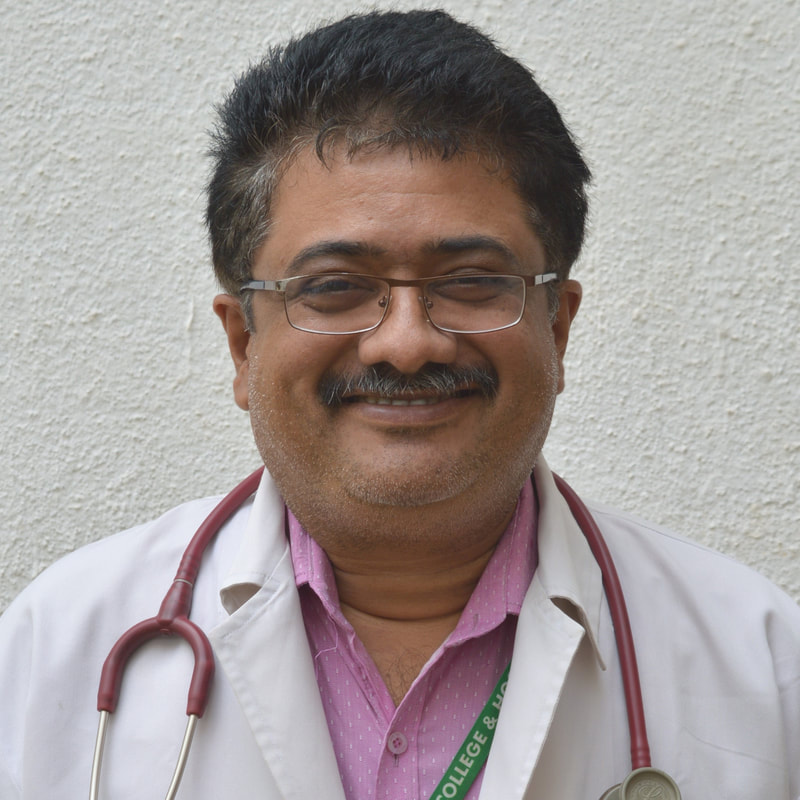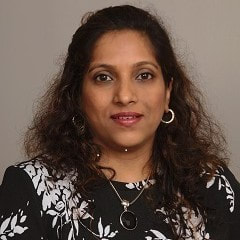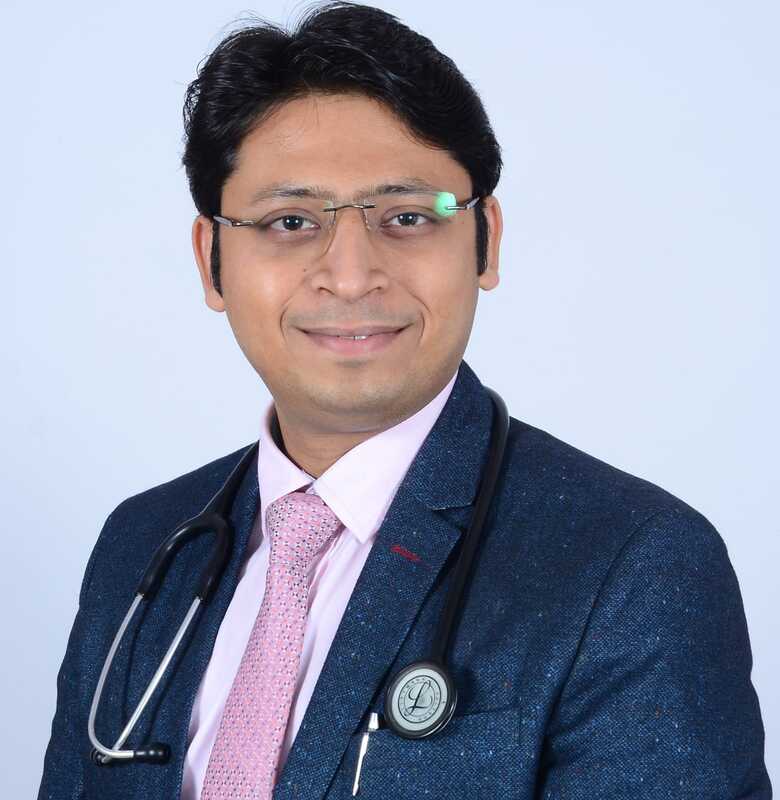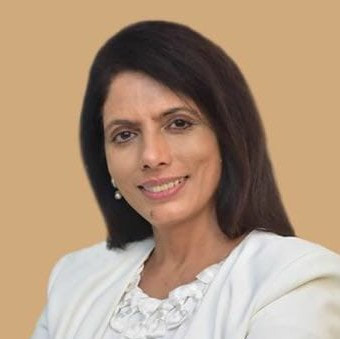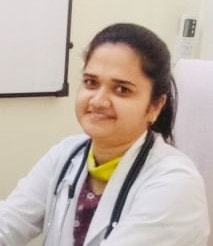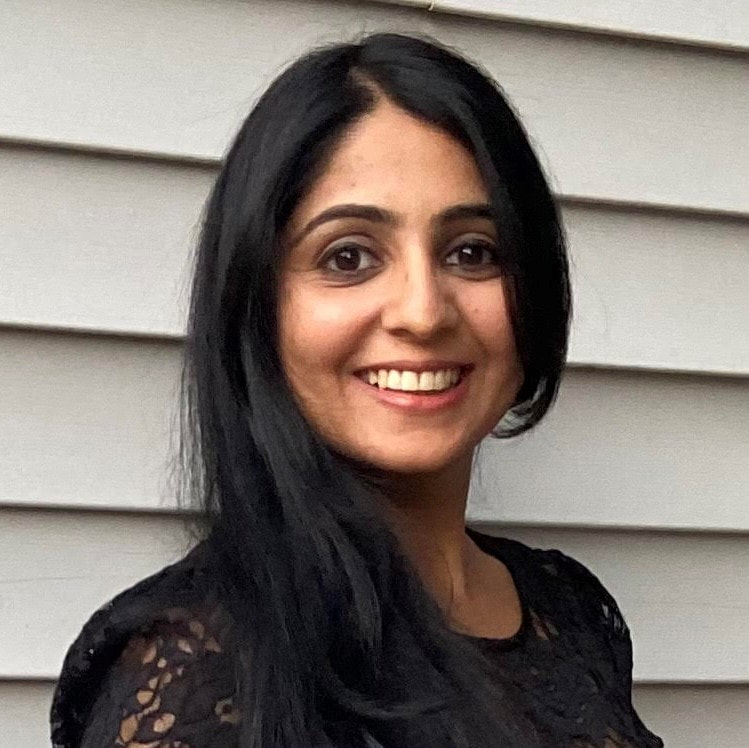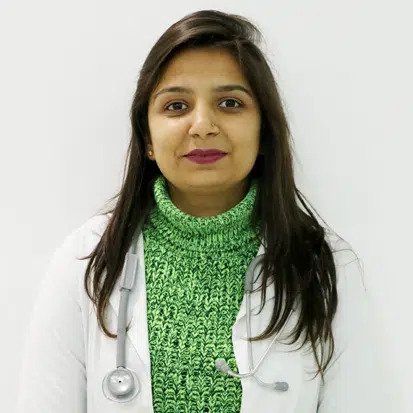- Home
- Shop
- Study Ayurveda
- Conferences
-
Past Conferences
- 61 Conference Ayurveda & Parkinson's Disease
- 60 Conference Ayurveda & Metabolic Disorders
- 59 Conference Ayurveda & Arthritis
- 58 Conference Ayurveda & Allergies
- 57 Conference Child Health Care Through Ayurveda
- 56 Conference Ayurveda for Women
- 55 Conference Ayurveda & Emotions
- 54 Conference Ayurveda & Addictions
- 53 Conference Ayurveda for a Healthy World
- 52 Conference Ayurveda & Eye Care
- 51 Conference Ayurveda & Stress Management
- 50 Conference Ayurveda & Marma Therapy
- 49 Conference Ayurveda & Aroma Therapy
- 48 Conference Ayurveda & Fertility
- 47 Conference Ayurveda for Healthy Living
- 46 Conference Ayurveda & Thyroid Care
- 45 Conference Ayurveda & Kidney Care
- 44 Conference Ayurveda & Heart Care
- 43 Conference Ayurveda & Gut Health
- 42 Conference Ayurveda & Liver Care
- 41 Conference Ayurveda & Lung Care
- 40 Conference Ayurveda & Skin Care
- 39 Conference Ayurveda & Pain Management
- 38 Conference Clinical Ayurveda
- 37 Conference Ayurveda & the Mind
- 36 Conference Ashtanga Ayurveda
- 35 Conference Ayurveda & Epigenetics
- 34 Conference: Evedence Based Ayurveda
- 33 Conference: Ayurvedic Pediatrics
- 32 Conference Ayurveda: Autoimmune & Metabolic Disorders
- 31 Conference AyurYoga for Radiant Health - Cruise
- 30 Conference Ayurveda, Yoga, Spirituality
- 29th Conference Mother & Child Healthcare
- 28 Conference Ayurveda & Panchakarma
- 27 Conference Ayurveda for All
- 26 Conference Ayurveda & Women's Health
- 25 Conference Silver Jubilee
- 24 Conference Kayachikitsa & Panchakarma
- 23 Conference Ayurveda for Health
- 22 Conference Home Remedies
- 21 Conference Ayurveda & Psychology
- 20 Conference Panchanga Veda
- 19 Conference Integrated Medicine
- 18 Conference Herbs & Minerals
- 17 Conference Food & Nutrition
- 16 Conference Shalakya Manthana
- 15 Conference Autoimmune Disorders
- 14 Conference Consciousness
- 13 Conference Energy Medicine
- 12 Conference Spirituality & Healing
- Related
About the Conference
15.0 PACE (Professional Ayurvedic Continuing Education) Credits from AAPNA (Association of Ayurvedic Professionals of North America, Inc. USA
Ayurveda & Fertility
27 Featured Speakers
Tentative Conference Schedule
Saturday, June 18, 2022
Conference Time: EST (Eastern Standard Time)
Conference Time: EST (Eastern Standard Time)
Time |
Topic |
Speaker |
08:00 am - 08:30 am |
The Four Fertility Factors of Ayurveda |
Dr. Jaya Daptardar, BAMS, MHA, RAD, Connecticut, USA |
08:30 am - 09:00 am |
Essential elements for the fertility in Ayurveda |
Dr. Pinki Maheshwari, BAMS, MD (Ayu) Scholar, Delhi, India |
09:00 am - 09:30 am |
Ayurvedic Approach to Fertility |
Dr. Rashi Sharma, BAMS, MD (Ayu), PhD (Ayu), Banaras, India |
09:30 am - 10:00 am |
A critical review to asses the factors influencing fertility in Ayurveda |
Dr. Rashmi Pujar, BAMS, MD (Ayu), PhD (Ayu), Karnataka, India |
10:00 pm - 10:30 am |
Ayurvedic Management of Female Infertility |
Dr. Zenab Damaniya, BAMS, Mumbai, India |
10:30 am - 11:00 am |
Understanding Medical condition of Female Infertility with special reference to PCOS |
Dr. Bishnupriya Mohanty, BAMS, MD (Ayu), Goa, India |
11:00 am - 11:30 am |
Stress and Fertility |
Dr. Prashant Jain, BAMS, MD (Ayu), Delhi, India |
11:30 am - 12:00 pm |
Management of Female Infertility Through Ayurveda |
Dr. Jasmine Gujarathi, BAMS, MS (Ayu), Gujarat, India |
12:00 pm - 12:30 pm |
PCOS - A causative factor for female infertility - A Case Study |
Dr. Seeta Biradar, BAMS, MS (Ayu), Karnataka, India |
12:30 pm - 01:00 pm |
Yoga Therapy to enhance fertility |
Dr. Shunmathi Gurumoorthy, BAMS, PGDYT, Ohio, USA |
01:00 pm - 01:30 pm |
Role of Virechana karma in the management of female infertility - A case report |
Dr. Shruthi, M, BAMS, MS (Ayu), Karnataka, India |
01:30 pm - 02:00 pm |
Role of Rajaswala Charya (Mensural Regimen) in unexplained female infertility |
Dr. Rajesh Kanwar, BAMS, MS (Ayu), Arizona, USA |
02:00 pm - 02:30 pm |
Protocol for the treatment of infertility in ayurveda |
Dr. Jayashree Patil, BAMS, MS (Ayu), Maharashtra, India |
02:30 pm - 03:00 pm |
Role of Naimittika rasayana in the management of infertility (Vandhyatwa) |
Dr. Neelima Pamulapati, BAMS, MD (Ayu) Scholar, Andhra Pradesh, India |
03:00 pm - 03:30 pm |
Synopsis of Research published in Netherlands University on Infertility demonstrating 42% result of Ayurveda vs. 18% result of Conventional Medicine |
Dr. Smita Naram, Maharashtra, India |
Sunday, June 19, 2022
Conference Time: EST (Eastern Standard Time)
Conference Time: EST (Eastern Standard Time)
Time |
Topic |
Speaker |
08:00 am - 08:30 am |
Ayurvedic Principles for enhancing fertility |
Dr. Drashti Parikh, BAMS, MD (Ayu), PGDYN, RAD, RDAM, New Jersey, USA |
08:30 am - 09:00 am |
Concept of Infertility and Ayurveda |
Dr. Sathish GI, BAMS, MD (Ayu), Karnataka, India |
09:00 am - 09:30 am |
Ayurvedic Management of female infertility (Vandhyatva) |
Dr. Nilofar Shaikh, BAMS, MS (Ayu), Gujarat, India |
09:30 am - 10:00 am |
Ayurveda and Fertility: The Success Stories |
Dr. Rahulkumar Kamde, BAMS, MD (Ayu), Maharashtra, India |
10:00 pm - 10:30 am |
Management of Male Fertility Through Ayurveda |
Dr. Vaishali Vasavda, BAMS, MS (Ayu), Gujarat, India |
10:30 am - 11:00 am |
The role of uttara basti in female infertility |
Dr. Sakshi, BAMS, MD (Ayu), Punjab, India |
11:00 am - 11:30 am |
An update of herbs in management of male infertility |
Dr. Krup Vasavda, BAMS, MD (Ayu), Gujarat, India |
11:30 am - 12:00 pm |
Role of Panchakarma in female infertility |
Dr. Shilpa Donga, BAMS, MD (Ayu), PhD (Ayu), Gujarat, India |
12:00 pm - 12:30 pm |
Ayurvedic Management of Infertility with PCOS |
Dr. Anjum G Nadaf, BAMS, LMT, RAD, FAAPNA, RYT-500, New Jersey, USA |
12:30 pm - 01:00 pm |
An Ayurvedic Approach to Immunological Infertility: Clinical Landings! |
Dr. Swarda Uppin, BAMS, MD (Ayu), Karnataka, India |
01:00 pm - 01:30 pm |
Recurrent abortion/miscarriage types, causes, and management |
Dr. Prathibha Balan, BAMS, MHA, RAD. LMT, Texas, USA |
01:30 pm - 02:00 pm |
Natural fertility boosters---The ayurvedic perspective |
Dr. Shivani Sharma, BAMS, Punjab, India |
Featured Speakers
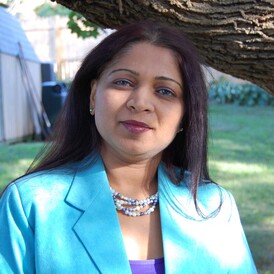
Dr. Jaya Daptardar, BAMS, MHA, RAD, Connecticut, USA - is an internationally renowned Ayurveda expert, writer, entrepreneur, healthcare executive, speaker, licensed Esthetician, and leader. She is an Ayurvedic doctor and has a Master's in healthcare administration & Management in the USA. She is an author of four books, passionate about beauty care in Ayurveda. She is a recipient of the DHARMA award from the Association of Ayurvedic professionals of North America for her work in Ayurveda and wellness. She has been practicing and teaching Ayurveda in the USA for 25 years. Besides her work in Ayurveda and the wellness world, she also serves multiple boards and works with non-profit organizations. Received a lifetime achievement award in the healthcare service field by doctor’s association in Connecticut, USA
Topic: The Four Fertility Factors of Ayurveda
Abstract: Ayurveda creates a natural harmony by connecting a person’s inner world (the mind, body, and spirit) with the outer world (the seasons, environment, and larger macrocosm). Ayurveda does this by preventing and reversing disease, improving quality of life, and increasing longevity for the individual’s unique constitution, and it has been doing so for thousands of years. It is absolutely possible to tip the balance toward health, even in a shifting environment. Furthermore, the ancient wisdom of Ayurveda brings us back to the very simple biological ideas behind how life is created. There are Four Fertility Factors to consider for natural fertility and reproductive health: seed, season, field, and water. Seeds are the ovum and sperm that join together and get implanted in the uterus. Seeds are also the intentions a woman has for supporting another life on the planet. They are given a chance only when the conditions are right for them to grow The season is synonymous with timing: time of life, time of year, monthly cycle, and day. There are optimal times for each woman to have a child. The field includes the uterus and other reproductive organs, which contribute to the creation and gestation of a fetus and the nurturing of a child, as well as the larger environment around the mother, child, and family. The field is a welcoming home for a new baby. Water is what flows through the field to nourish the tissues of both mother and child, delivering messages via hormones and lubricating the body for the immense physical changes taking place during the menstrual cycle, gestation, and birth. The water element is a nurturer, a carrier, and a mixer. It maintains the stability of the temperature inside the body so that metabolic processes can take place within their optimum range.
Topic: The Four Fertility Factors of Ayurveda
Abstract: Ayurveda creates a natural harmony by connecting a person’s inner world (the mind, body, and spirit) with the outer world (the seasons, environment, and larger macrocosm). Ayurveda does this by preventing and reversing disease, improving quality of life, and increasing longevity for the individual’s unique constitution, and it has been doing so for thousands of years. It is absolutely possible to tip the balance toward health, even in a shifting environment. Furthermore, the ancient wisdom of Ayurveda brings us back to the very simple biological ideas behind how life is created. There are Four Fertility Factors to consider for natural fertility and reproductive health: seed, season, field, and water. Seeds are the ovum and sperm that join together and get implanted in the uterus. Seeds are also the intentions a woman has for supporting another life on the planet. They are given a chance only when the conditions are right for them to grow The season is synonymous with timing: time of life, time of year, monthly cycle, and day. There are optimal times for each woman to have a child. The field includes the uterus and other reproductive organs, which contribute to the creation and gestation of a fetus and the nurturing of a child, as well as the larger environment around the mother, child, and family. The field is a welcoming home for a new baby. Water is what flows through the field to nourish the tissues of both mother and child, delivering messages via hormones and lubricating the body for the immense physical changes taking place during the menstrual cycle, gestation, and birth. The water element is a nurturer, a carrier, and a mixer. It maintains the stability of the temperature inside the body so that metabolic processes can take place within their optimum range.
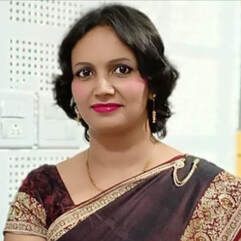
Dr. Rashi Sharma, BAMS, MD (Ayu), PhD (Ayu), Banaras, India - presently working as Associate Professor, Faculty of Ayurveda, Institute of medical sciences, Banaras Hindu University, Uttar Pradesh, India. I have been presenting papers on different scientific aspects of Ayurveda and research based themes in International and National conferences. I am supervising PhD Research scholars and Ayurveda M.D. Scholars for many years. I have authored and co-authored Ayurveda curriculum based text-books and concept based books for our Ayurveda aspirants and research scholars and keen Ayurveda researchers.
Topic: Ayurvedic approach to Fertility
Abstract: Ayurveda is the divine life of science since time immemorial. Ayurveda classics and texts have mentioned certain concepts about ways of supporting and promoting pregnancy. Ayurveda emphasizes the preconception period as a vast time period and not just the pregnancy period itself. The preconception time offers a golden opportunity to provide the best nourishment and care to garbhini ( lady who's planning to conceive) and the future child. In Ayurveda, it is described that there are four essential components that must work together optimally—timing (ritu), the field/place (shetra), fluids and nutrition (ambu), and the seed (bija).Balanced and optimal status of all are essential conditions required for fertility.
Topic: Ayurvedic approach to Fertility
Abstract: Ayurveda is the divine life of science since time immemorial. Ayurveda classics and texts have mentioned certain concepts about ways of supporting and promoting pregnancy. Ayurveda emphasizes the preconception period as a vast time period and not just the pregnancy period itself. The preconception time offers a golden opportunity to provide the best nourishment and care to garbhini ( lady who's planning to conceive) and the future child. In Ayurveda, it is described that there are four essential components that must work together optimally—timing (ritu), the field/place (shetra), fluids and nutrition (ambu), and the seed (bija).Balanced and optimal status of all are essential conditions required for fertility.
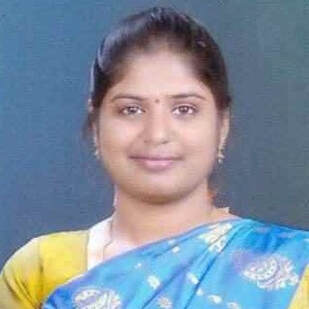
Dr. Rashmi Pujar, BAMS, MD (Ayu), PhD (Ayu), Karnataka, India - Presently working as Assistant Professor Department of Roganidana at JSS Ayurveda Medical College, Mysuru, Karnataka. Complete U.G from Ayurveda Mahavidyalaya Hubli, Karnataka. and PG from Sri Dharmasthala Manjutheshwara College of Ayurveda and Hospital Udupi, Karnataka and percieved 8th rank in Roganidana and Vikritivigyana..Editorial Board Member of World Journal of Pharmacy and Pharmaceutical Sciences (WJPPS) and Association of Ayurvedic Professionals of North America, Inc United States of America certificate .Awarded with Ashtavaidyan E.T. Neelakandan Mooss Memorial Award - Best thesis in the junior level thesis competition-2012. Published A Text Book on Research methodology and statistics in Ayurveda under Chaukambha Orientalia in the year 2019.
Topic: A critical review to asses the factors influencing fertility in Ayurveda
Abstract: Ayurveda being a holistic science always stress on the prevention is better than).In present day Infertility affects millions of people of reproductive age worldwide and has an impact on their families and communities. Estimates suggest that between 48 million couples and 186 million individuals live with infertility globally As per Ayurveda, important factors for conception are considered as rutu , Kshetra , Ambu and Bija If any one of among these are improper than it leads to Vandhyatva. Ayurveda gives importance to enhance factors responsible for the fertility .Here an effort is made to understand factors influencing fertility in Ayurveda.
Topic: A critical review to asses the factors influencing fertility in Ayurveda
Abstract: Ayurveda being a holistic science always stress on the prevention is better than).In present day Infertility affects millions of people of reproductive age worldwide and has an impact on their families and communities. Estimates suggest that between 48 million couples and 186 million individuals live with infertility globally As per Ayurveda, important factors for conception are considered as rutu , Kshetra , Ambu and Bija If any one of among these are improper than it leads to Vandhyatva. Ayurveda gives importance to enhance factors responsible for the fertility .Here an effort is made to understand factors influencing fertility in Ayurveda.

Dr. Zenab Damaniya, BAMS, Mumbai, India - Ayurvedic Bariatric physician, Obesity & Skin specialist. Life coach and motivational speaker
Degree in Ayurveda medicine & Surgery (MUHS) , Certified in Gynaecology & Obstetrics, Post graduate diploma in Clinical Cosmetology (Germany), Certified in Child Health care , Certified in skin & Venereal diseases. Expert in treating Obesity, Cardio Vascular diseases, Diabetes, Blood Pressure, Hypo Thyroids, PCOD, Skin problems (acne, pigmentation, Antiaging & skin glow treatment), Acidity, Immune system, Digestive disorder, Infertility. Awarded and recognized for the contribution to the society by MSSS Mumbai, India Recognition by various news papers like Navbharat times, etc. Regular article in Health and Fitness column in Hello Mumbai news.
Topic: A critical review to asses the factors influencing fertility in Ayurveda
Abstract: Whilst most of them have looked forward to IVF, IUI and ART (Assisted reproductive treatment) there are many who are still struggling to make a decision in the same regard. Still, Infertility is a bigger issue than one can imagine.
There are various treatments available in medical science. Let’s take a look at the most effective Ayurvedic treatments for the management of Infertility. Using various Ayurvedic principles like Shaman chikitsa (balancing methods), Shodhana chikitsa (purification methods) and much more along with the basic understanding of its causes the Bhishag (Vaidya) i.e the Ayurvedic Doctor with the Chikitsa Chatushpada (four limbs of treatment) endowed with their proper qualities can succeed in the cure of disease.
Degree in Ayurveda medicine & Surgery (MUHS) , Certified in Gynaecology & Obstetrics, Post graduate diploma in Clinical Cosmetology (Germany), Certified in Child Health care , Certified in skin & Venereal diseases. Expert in treating Obesity, Cardio Vascular diseases, Diabetes, Blood Pressure, Hypo Thyroids, PCOD, Skin problems (acne, pigmentation, Antiaging & skin glow treatment), Acidity, Immune system, Digestive disorder, Infertility. Awarded and recognized for the contribution to the society by MSSS Mumbai, India Recognition by various news papers like Navbharat times, etc. Regular article in Health and Fitness column in Hello Mumbai news.
Topic: A critical review to asses the factors influencing fertility in Ayurveda
Abstract: Whilst most of them have looked forward to IVF, IUI and ART (Assisted reproductive treatment) there are many who are still struggling to make a decision in the same regard. Still, Infertility is a bigger issue than one can imagine.
There are various treatments available in medical science. Let’s take a look at the most effective Ayurvedic treatments for the management of Infertility. Using various Ayurvedic principles like Shaman chikitsa (balancing methods), Shodhana chikitsa (purification methods) and much more along with the basic understanding of its causes the Bhishag (Vaidya) i.e the Ayurvedic Doctor with the Chikitsa Chatushpada (four limbs of treatment) endowed with their proper qualities can succeed in the cure of disease.
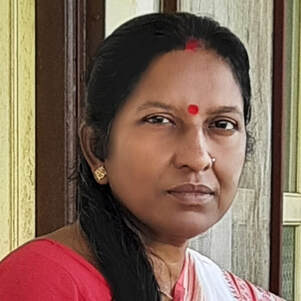
Dr. Bishnupriya Mohanty, BAMS, MD (Ayu), Goa, India - Bishnupriya Mohanty is working as HOD Sanskrit Samhita and Siddhanta at GAM&RC, Goa. She has completed her MD (Ay) and awarded PhD from ITRA Jamnagar, having 20 Years experience.
She has published 121 scientific research articles in Peer reviewed, indexed, UGC Journals. She is recognized PG, PhD guide. Member Secretary IEC, Chair Person, Ethical Committee; NABH , Member Faculty Board in Faculty of Medicine. She is President Global Sanskrit Forum and Viswa Ayurveda Parishad Goa. Awarded and felicitated at Indian International Science Festival (IISF), Jadavpur University, Kolkata, November 2019 - Project on Quantum Healing approach of Charaka Samhita for New India Movement.
Topic: Understanding Medical condition of Female Infertility with special reference to PCOS
Abstract: Infertility is a disease need to understand medically, physically, psychologically and more important from spiritual point of view. It is essential to review all possible causative factors related to patient and partner. The broad varieties of causes include ovulatory issues, endometriosis, pelvic adhesion, tubal issues, hyper prolactinemia and other uterine causes. This presentation will focus on female factors especially with a history of PCOS. The menstrual cycle may normal with no or immature follicle. FSH , Estrogen may normal but elevated LH lead to such. So treatment principle is to treat PCOS and finally good ovulation and treatment of fertility.
She has published 121 scientific research articles in Peer reviewed, indexed, UGC Journals. She is recognized PG, PhD guide. Member Secretary IEC, Chair Person, Ethical Committee; NABH , Member Faculty Board in Faculty of Medicine. She is President Global Sanskrit Forum and Viswa Ayurveda Parishad Goa. Awarded and felicitated at Indian International Science Festival (IISF), Jadavpur University, Kolkata, November 2019 - Project on Quantum Healing approach of Charaka Samhita for New India Movement.
Topic: Understanding Medical condition of Female Infertility with special reference to PCOS
Abstract: Infertility is a disease need to understand medically, physically, psychologically and more important from spiritual point of view. It is essential to review all possible causative factors related to patient and partner. The broad varieties of causes include ovulatory issues, endometriosis, pelvic adhesion, tubal issues, hyper prolactinemia and other uterine causes. This presentation will focus on female factors especially with a history of PCOS. The menstrual cycle may normal with no or immature follicle. FSH , Estrogen may normal but elevated LH lead to such. So treatment principle is to treat PCOS and finally good ovulation and treatment of fertility.
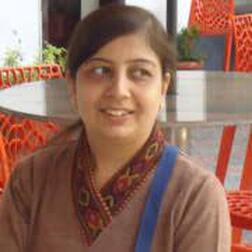
Dr. Jasmine Gujarathi, BAMS, MS (Ayu), Gujarat, India - is presently working as a professor and head in the department of Prasuti Tantra and Stri Roga at GJ Patel Institute of Ayurved Studies and research, New Vallabh Nagar, Anand, Gujarat, India. She has done post graduation from IPGT&RA, Jamnagar, India. She has delivered more than 88 lectures on various topics related to ayurveda and women's health, published 48 research papers and authored 4 books.
Topic: Management of Female Infertility Through Ayurveda
Abstract: There has been a rise in number of cases of female infertility worldwide. The search for alternative and cost effective therapies has lead attention of all medical sciences towards ayurveda. Ayurveda treatment guidelines including oral medicines, panchakarma and local therapies are proved to be effective in managing female infertility diagnosed with ovarian factor, tubal blockage and others.
Topic: Management of Female Infertility Through Ayurveda
Abstract: There has been a rise in number of cases of female infertility worldwide. The search for alternative and cost effective therapies has lead attention of all medical sciences towards ayurveda. Ayurveda treatment guidelines including oral medicines, panchakarma and local therapies are proved to be effective in managing female infertility diagnosed with ovarian factor, tubal blockage and others.
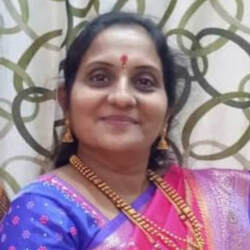
Dr. Seeta Biradar, BAMS, MS (Ayu), Karnataka, India - working as Professor & Head in dept. of Roganidana evum Vikrutivijanan in BLDEA'S AVS AYURVEDA MAHAVIDYALAYA ,Vijayapur, Karnataka, India. Presented many papers at National and International webinars. Guided 3 Undergraduate projects of RGUHS, Bangalore . Also participated in many seminars and workshops.
Topic: PCOS - A causative factor for female infertility - A Case Study
Abstract: Polycystic Ovarian Syndrome or PCOS is a hormonal condition which effects the females from menarche to menopause . shloka……stri being the root cause of progeny utmost case should be done,Pcod is one of the condition effecting this unique condition, and as the name suggests PCOS, collection of ovarian dysfunction. A female patient aged 30 yrs, married since 10 years ,k/c/o hypothyroidism since 6 years and was on regular treatment Tab Thyroxine 50mg,came to opd with c/o primary infertility with H/O Habitual abortions, and Irregular periods,was treated with the protocol Maharasnaadi kwatha Pushpadhanwarasa and Hingu with lukewarm water from 4th day of period for 10 days, and advised for follicle study on 10th day which revealed the presence of follicles measuring 6-8mm,and was advised to follow the pathya. follow up was done after 2months by repeating follicular study which revealed ……and successful ovulation was seen,which brought the happiness on the patient face, this case report boosts the Ayurveda practitioners to practice such complicated cases with confidence.
Key Words --PCOS, Primary infertility, Ayurveda.
Topic: PCOS - A causative factor for female infertility - A Case Study
Abstract: Polycystic Ovarian Syndrome or PCOS is a hormonal condition which effects the females from menarche to menopause . shloka……stri being the root cause of progeny utmost case should be done,Pcod is one of the condition effecting this unique condition, and as the name suggests PCOS, collection of ovarian dysfunction. A female patient aged 30 yrs, married since 10 years ,k/c/o hypothyroidism since 6 years and was on regular treatment Tab Thyroxine 50mg,came to opd with c/o primary infertility with H/O Habitual abortions, and Irregular periods,was treated with the protocol Maharasnaadi kwatha Pushpadhanwarasa and Hingu with lukewarm water from 4th day of period for 10 days, and advised for follicle study on 10th day which revealed the presence of follicles measuring 6-8mm,and was advised to follow the pathya. follow up was done after 2months by repeating follicular study which revealed ……and successful ovulation was seen,which brought the happiness on the patient face, this case report boosts the Ayurveda practitioners to practice such complicated cases with confidence.
Key Words --PCOS, Primary infertility, Ayurveda.
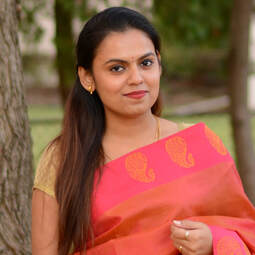
Dr. Shunmathi Gurumoorthy, BAMS, PGDYT, Ohio, USA - Ayurvedic practitioner with focus on diet, yoga and holistic lifestyle. Helping individuals heal for over 5 years with controlling symptoms and improving health. With an interest in Obstetric, Gynecology and Infertility, served as an ayurvedic health and lifestyle consultant and yoga therapist for couples with fertility issues by addressing their concern, counseling and prenatal yoga therapy for pregnant women to prevent any complications related to pregnancy and postpartum. I have been awarded an outstanding service in clinical care by Mamallan Indian Medical Foundation, Chennai, India. Received my B.A.M.S degree from Dr. M.G.R Medical university, Chennai. Registered Indian medicine practitioner from the Tamil Nadu board of Indian medicine. Post Graduate Diploma in Yoga Therapy from SVyasa University, Bangalore. Also Internationally certified yoga instructor with specialized Certification in antenatal and postnatal yoga therapy.
Topic: Yoga Therapy to enhance Fertility
Abstract: Yoga therapy for fertility improves both female and male infertility by minimizing stress, which consecutively balances the hormones of the body with improvement in mental and physical health, thereby increasing a couple's ability to conceive. The topic is to focus more on the importance of yoga therapy, benefits, factors causing infertility, balancing the reproductive hormones through yogic practices like aasana, pranayama, meditation.
Topic: Yoga Therapy to enhance Fertility
Abstract: Yoga therapy for fertility improves both female and male infertility by minimizing stress, which consecutively balances the hormones of the body with improvement in mental and physical health, thereby increasing a couple's ability to conceive. The topic is to focus more on the importance of yoga therapy, benefits, factors causing infertility, balancing the reproductive hormones through yogic practices like aasana, pranayama, meditation.
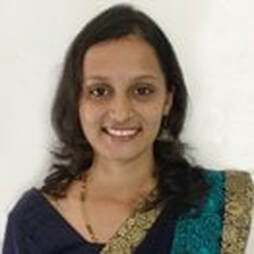
Dr. Shruthi M, BAMS, MS (Ayu), Karnataka, India - Academician and Ayurveda practitioner,
Completed UG and PG in Prasooti tantra and stree roga from Rajeev Gandhi University of Health science, Bengaluru. Secured 2nd Rank for RGUHS in PG. Presently working as assistant professor in JSS Ayurveda medical college, Mysuru. Completed PG thesis on Effectiveness of PUGA PAKA in the management of female infertility due to Anovulation. Published more than 7 papers in National and International Journals. Presented scientific papers in many national and international conferences. Passionate towards Ayurveda practice and yoga. Has 4 years experience in teaching and clinical practice Practicing Ayurveda Antenatal care and post natal care and Garbha sanskar
Topic: Role of Virechana karma in the management of female infertility - A case report
Abstract: Infertility is a global reproductive health challenge among 10 to 15 percent of reproductive aged couple and it is becoming a real challenge for gynecologists in their clinical practice. The number of females attending clinics seeking help for conception is increasing day by day due to various reasons. One among such reason is anovulation. The normal state of four factors viz. Rutu, Kshetra, Ambu and Beeja are necessary for the conception. Here Beeja, has been considered as Antahpushpa, i.e. ovum. So anovulation can be included under BeejaDushti. Virechana karma is an effective therapy to enhance the fertility by increasing the potency of beeja. Ayurveda mentioned as Beejam bhavati Karmukam. This paper dealing about the management of an infertility case with the help of Virechana karma
Completed UG and PG in Prasooti tantra and stree roga from Rajeev Gandhi University of Health science, Bengaluru. Secured 2nd Rank for RGUHS in PG. Presently working as assistant professor in JSS Ayurveda medical college, Mysuru. Completed PG thesis on Effectiveness of PUGA PAKA in the management of female infertility due to Anovulation. Published more than 7 papers in National and International Journals. Presented scientific papers in many national and international conferences. Passionate towards Ayurveda practice and yoga. Has 4 years experience in teaching and clinical practice Practicing Ayurveda Antenatal care and post natal care and Garbha sanskar
Topic: Role of Virechana karma in the management of female infertility - A case report
Abstract: Infertility is a global reproductive health challenge among 10 to 15 percent of reproductive aged couple and it is becoming a real challenge for gynecologists in their clinical practice. The number of females attending clinics seeking help for conception is increasing day by day due to various reasons. One among such reason is anovulation. The normal state of four factors viz. Rutu, Kshetra, Ambu and Beeja are necessary for the conception. Here Beeja, has been considered as Antahpushpa, i.e. ovum. So anovulation can be included under BeejaDushti. Virechana karma is an effective therapy to enhance the fertility by increasing the potency of beeja. Ayurveda mentioned as Beejam bhavati Karmukam. This paper dealing about the management of an infertility case with the help of Virechana karma
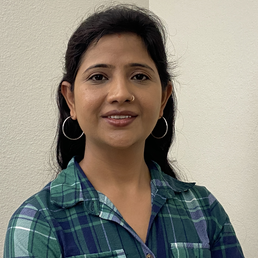
Dr. Rajesh Kanwar, BAMS, MS (Ayu), Arizona, USA - is an Ayurveda expert, classically trained Vaidya. She post graduated from the National Institute of Ayurveda, Jaipur, India in 2013 with a degree of Ayurveda Dhanvantari– M.S. (Prasuti-Stri Roga). She is Gold Medalist in B.A.M.S. from Dr. Sarvepalli Radhakrishnan Rajasthan Ayurveda University, Jodhpur, India. She is a certified Yoga Instructor and got her certification from Scottsdale, Arizona, USA. As an Ayurveda practitioner and Yoga instructor, she is treating/helping people suffered from lifestyle disorder like- thyroid, pre-diabetic, obesity, PCOD, female idiopathic primary and secondary infertility voluntarily. She is a strong believer of health preservation by following best practice of Ayurveda and Yoga.
Topic: Role of Rajaswala-charya (Menstrual Regimen) in Unexplained female Infertility
Abstract: Ayurveda is the mother science of all other medical sciences. Ayurveda opened a door that medical education ignored, how to preserve and promote health through different ways like dincharya, ratrichrya, ritucharya, sadvrita etc. Acharyas mention special charyas/regimen for maintaining the woman health like rajaswala-charya, garbhini charya, soothika charya etc. The code of conduct during menstruation is termed as rajaswala charya and is the most neglected charya in today’s lifestyle. Rajaswala- charya helps women to cope up with her physiological and psychological changes during this period. Ayurveda clearly mentions the relevance of practicing Rajaswala-charya and how it helps to keep a woman and her future conception healthy. By the concept of four fertility factors (ritu, kshetra, ambu, beeja) in the formation of garbha, it is very clear that healthy progeny begins at the very level of pre-conceptional care in the form of rajaswala-charya. The more likely causes of unexplained female infertility involve ovulation problems, Poor egg quality, problems with pelvic health, where the role of rajaswala-charya plays an important role.
Topic: Role of Rajaswala-charya (Menstrual Regimen) in Unexplained female Infertility
Abstract: Ayurveda is the mother science of all other medical sciences. Ayurveda opened a door that medical education ignored, how to preserve and promote health through different ways like dincharya, ratrichrya, ritucharya, sadvrita etc. Acharyas mention special charyas/regimen for maintaining the woman health like rajaswala-charya, garbhini charya, soothika charya etc. The code of conduct during menstruation is termed as rajaswala charya and is the most neglected charya in today’s lifestyle. Rajaswala- charya helps women to cope up with her physiological and psychological changes during this period. Ayurveda clearly mentions the relevance of practicing Rajaswala-charya and how it helps to keep a woman and her future conception healthy. By the concept of four fertility factors (ritu, kshetra, ambu, beeja) in the formation of garbha, it is very clear that healthy progeny begins at the very level of pre-conceptional care in the form of rajaswala-charya. The more likely causes of unexplained female infertility involve ovulation problems, Poor egg quality, problems with pelvic health, where the role of rajaswala-charya plays an important role.
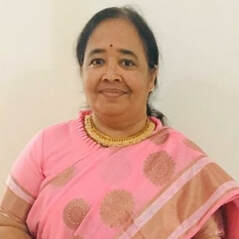
Dr. Jayashree Patil, BAMS, MS (Ayu), Maharashtra, India - Head of the Department (Streerog -Prasutitanra Department) Dr. D. Y. Patil College Of Ayurved. Practicing ayurvedic Gynecologist since last 25 years .Garbhasanskar Trainer ,Published articles on Garbhasanskar ,Conducts Garbhasanskar sessions for pregnant ladies since last 15 years ,NABH Co-ordinater, Dr.D.Y.Patil College Of Ayurved. (completed Pre-assessment, Final Assessment ,Surveillance visit successfully) Academic :-PG and P.H.D. Guide ,Written A Book on" Prasutitanra " Included in reference book list of the subject by MUHS.
Topic: All the infertility patients coming to ayurveda outpatient department. For the treatment are already treated by so many specialists. We need to find a specific protocol for them. Purification of body with panchakarma, lifestyle modifications, yoga poses there are very much useful. Prakruti assessment and cause of infertility can be ascertained.
Topic: All the infertility patients coming to ayurveda outpatient department. For the treatment are already treated by so many specialists. We need to find a specific protocol for them. Purification of body with panchakarma, lifestyle modifications, yoga poses there are very much useful. Prakruti assessment and cause of infertility can be ascertained.
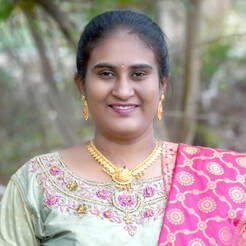
Dr. Neelima Pamulapati, BAMS, MD (Ayu) Scholar, Andhra Pradesh, India - Presently pursuing Post graduation in same college in department of Kayachikitsa. I participated various seminars like webinar of immunology and attended various workshops on Obesity, Diabetes mellitus etc. And also I conducted several medical camps in rural areas.
Topic: Role of Naimittika Rasayana in the management of infertility (Vandhyatwa)
Abstract: Infertility is a serious health issue worldwide, affecting approximately 8%–10% of couples worldwide. Of 60–80 million couples suffering from infertility every year worldwide. Naimittika rasayana is a type of Kamya rasaya which is used for disease curative purpose. According various acharyaa Naimittika rasayana like Saraswata ghrita, ashwagandha rasayana & satavari rasayana are helpful in the treatment of infertility.
Topic: Role of Naimittika Rasayana in the management of infertility (Vandhyatwa)
Abstract: Infertility is a serious health issue worldwide, affecting approximately 8%–10% of couples worldwide. Of 60–80 million couples suffering from infertility every year worldwide. Naimittika rasayana is a type of Kamya rasaya which is used for disease curative purpose. According various acharyaa Naimittika rasayana like Saraswata ghrita, ashwagandha rasayana & satavari rasayana are helpful in the treatment of infertility.
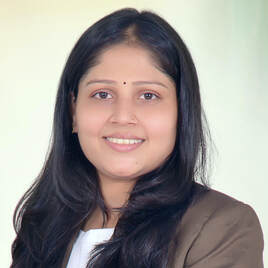
Dr. Drashti Parikh, BAMS, MD (Ayu), PGDYN, RAD, RDAM, New Jersey, USA - is an Ayurvedic doctor. She is owner of Shree Vaishvanar Ayurveda LLC. She is a Board of Director (BOD), Academic Board Member, and Global Ambassador of AAPNA. She has completed her BAMS with multiple Gold Medals, and also completed her Master's Degree in Kaya Chikitsa from IPGT&RA. She holds a postgraduate diploma in Yoga & Naturopathy as well. Drashti has authored the book ‘Manual of Kayachikitsa (part-1)’, and she is also an author of various articles & researches on Ayurveda. Throughout her academic career, she had the honor & privilege to participate in various national & international conferences where she has received multiple awards on the subject of Ayurveda.
Topic: Ayurvedic principles for enhancing fertility
Abstract: Ayurveda is an ancient science of life! Classical literatures of Ayurveda has described various principles for promoting and assisting with fertility. Fertility means the capability to produce offspring or power of reproduction. Ayurveda has described four fertility factors: 1) Ritu (timing), 2) Kshetra (field), 3) Ambu (fluid & nutrition), and 4) Beeja (seed). Balanced and optimal state of all factors are essential for natural fertility. These four factors are mostly influenced by our diet, lifestyle and our state of mind. Proper diet and lifestyle can enhance fertility. We will discuss how to enhance fertility by focusing on these four Ayurvedic fertility factors in detail. Stay tuned!
Topic: Ayurvedic principles for enhancing fertility
Abstract: Ayurveda is an ancient science of life! Classical literatures of Ayurveda has described various principles for promoting and assisting with fertility. Fertility means the capability to produce offspring or power of reproduction. Ayurveda has described four fertility factors: 1) Ritu (timing), 2) Kshetra (field), 3) Ambu (fluid & nutrition), and 4) Beeja (seed). Balanced and optimal state of all factors are essential for natural fertility. These four factors are mostly influenced by our diet, lifestyle and our state of mind. Proper diet and lifestyle can enhance fertility. We will discuss how to enhance fertility by focusing on these four Ayurvedic fertility factors in detail. Stay tuned!
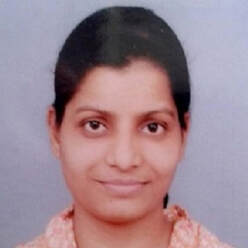
Dr. Pinki Maheshwari, BAMS, MD (Ayu) Scholar, Delhi, India - perusing my final year of doctorate of medicine in Rachana Sharir (Anatomy) from State Ayurvedic college and hospital, Lucknow. Working on my thesis "An anatomical consideration of Garbhashaya w.s.r. to Masanumasik Garbha Vriddhi". Prior to that I have done BAMS from RAC Bareilly. Recently I have written an article on "Conceptual analysis of sex determination or ling nirdharana in ayurveda". I also want to do clinical reaserch in Ayurveda to create awareness and faith in Ayurveda.
Topic: Essential elements for the fertility in ayurveda
Abstract: According to National Family Health Survey (NFHS) in India, the TFR (total fertility rate) decreased from 3.4 to 2.0 children between 1992- 93 and 2019- 21. In Ayurveda, Sushruta has given four essential elements (Garbha Sambhava Samagri) for the formation of Garbha as Ritu (the ideal ovulatory period), Kshetra (the female reproductive system), Ambu (the nutritive fluids) and Beeja (ovum). Similarly, a healthy physiological status, normal functioning of Vata and Shadbhava (Matrija, Pitraja, Atmaja, Satmyaja, Rasaja, Satvaja) are also responsible. Any abnormality in above these factors causes infertility.
Keywords- Fertility, Garbha Sambhava Samagri, Vata, Shadbhava.
Topic: Essential elements for the fertility in ayurveda
Abstract: According to National Family Health Survey (NFHS) in India, the TFR (total fertility rate) decreased from 3.4 to 2.0 children between 1992- 93 and 2019- 21. In Ayurveda, Sushruta has given four essential elements (Garbha Sambhava Samagri) for the formation of Garbha as Ritu (the ideal ovulatory period), Kshetra (the female reproductive system), Ambu (the nutritive fluids) and Beeja (ovum). Similarly, a healthy physiological status, normal functioning of Vata and Shadbhava (Matrija, Pitraja, Atmaja, Satmyaja, Rasaja, Satvaja) are also responsible. Any abnormality in above these factors causes infertility.
Keywords- Fertility, Garbha Sambhava Samagri, Vata, Shadbhava.
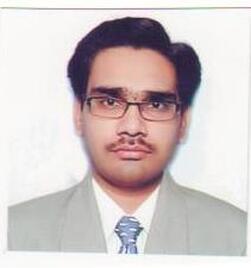
Dr. Rahulkumar Kamde, BAMS, MD (Ayu), Maharashtra, India - Currently serving the Tribal & Rural population in District- Dhule (Maharashtra) since year 2006.. Teaching Prasuti tantra & Streerog to Undergraduate students at BAMS College since year 2005. Research Excellence Award 2020 by Institute of Scholars, Bengaluru. May 2020. Best National Researcher Award 2020 by Ayurved Teacher’s Association of India. Article published in “Brandz Magazine” special edition Vol 2 Issue 6 Pg.no. 59-61 on my Success Stories. Special Interests: Ayurvedic Treatment of Infertile couple, Menstrual irregularities, PCOD, Oligospermia, Male-Female sexual dysfunction.
Topic: Ayurveda and Fertility: Success stories
Abstract: Ayurveda addresses female infertility in details. The causes, types, clinical manifestations and treatment are described with a systematic mode in classical texts. Modern day pathological and radiological investigations help to build a definitive diagnosis. This helps to identify exact pathophysiology such as dis-ovulation, abnormal HPO axis, endometrial pathology, tubal blockage or immunological causes. The Ayurvedic approach to treat a specific condition using shodhan (body cleansing), shaman (herbal or herbo mineral medicines) & rasayan (immunomodulation) is found very successful. The holistic and indigenous manner of Ayurveda improves diseased condition effectively. This paper highlights selected success stories with variety of pathology in female infertility using pure Ayurvedic interventions.
KEY WORDS: fertility, vandhyatwa, female infertility, Ayurvedic treatment
Topic: Ayurveda and Fertility: Success stories
Abstract: Ayurveda addresses female infertility in details. The causes, types, clinical manifestations and treatment are described with a systematic mode in classical texts. Modern day pathological and radiological investigations help to build a definitive diagnosis. This helps to identify exact pathophysiology such as dis-ovulation, abnormal HPO axis, endometrial pathology, tubal blockage or immunological causes. The Ayurvedic approach to treat a specific condition using shodhan (body cleansing), shaman (herbal or herbo mineral medicines) & rasayan (immunomodulation) is found very successful. The holistic and indigenous manner of Ayurveda improves diseased condition effectively. This paper highlights selected success stories with variety of pathology in female infertility using pure Ayurvedic interventions.
KEY WORDS: fertility, vandhyatwa, female infertility, Ayurvedic treatment
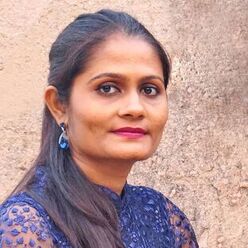
Dr. Vaishali Vasavda, BAMS, MS (Ayu), Gujarat, India
- is working as Assistant professor Department of Prasuti Tantra and Stree Roga, J S Ayurveda College, Nadiad, Gujarat, India. She is an international Speaker expressed her views on gynaecology on various international platforms. She is a member in Syllabus Drafting Committee, CCIM, and India. She is a Post graduate examiner in various other universities. She obtained her UG and PG from Sri Kalabyraveshwara Swamy Ayurvedic Medical College and Research Centre, Bangalore, Karnataka, India. Her Subject of Specialization is Prasuti Tantra and Stree Roga. She is practicing Ayurvedic physician and specialty in Ayurvedic management of Gynecological Disorders. Her subject of interest is common gynaecological disorders, genetics, and Garbhasamskara. She has an expertise in pain management by various Ayurveda therapies. She has published many papers in national and international peer reviewed journals. Dr. Vaishali Vasavda is a supporting member of AAPNA, USA.
Topic: Management of male infertility through Ayurveda
Abstract: Infertility is defined classically as the inability to conceive after 1 year of unprotected and regular intercourse. This definition is based on the cumulative probability of pregnancy. In about half the cases, male infertility is a factor. Causes of male infertility include abnormal sperm production or function and/or impaired delivery of sperm. General health and lifestyle issues such like, excessive smoking, alcohol intake, degrading environment, high pollution levels, changes in food habits, and deskbound work, stress etc. and exposure to certain environmental factors like exposure to radiation are some key factors that affect male fertility negatively. Ayurveda realized the problem of male sexual dysfunction thousands of years ago and developed a separate specialty, namely, Aphrodisiac therapy. It has also recommended an appropriate use of plant-based remedies, a proper lifestyle and nutritious diet for improving overall health and treating male infertility. Current paper aims at putting forward the causes and treatment of male infertility as described in Ayurveda.
- is working as Assistant professor Department of Prasuti Tantra and Stree Roga, J S Ayurveda College, Nadiad, Gujarat, India. She is an international Speaker expressed her views on gynaecology on various international platforms. She is a member in Syllabus Drafting Committee, CCIM, and India. She is a Post graduate examiner in various other universities. She obtained her UG and PG from Sri Kalabyraveshwara Swamy Ayurvedic Medical College and Research Centre, Bangalore, Karnataka, India. Her Subject of Specialization is Prasuti Tantra and Stree Roga. She is practicing Ayurvedic physician and specialty in Ayurvedic management of Gynecological Disorders. Her subject of interest is common gynaecological disorders, genetics, and Garbhasamskara. She has an expertise in pain management by various Ayurveda therapies. She has published many papers in national and international peer reviewed journals. Dr. Vaishali Vasavda is a supporting member of AAPNA, USA.
Topic: Management of male infertility through Ayurveda
Abstract: Infertility is defined classically as the inability to conceive after 1 year of unprotected and regular intercourse. This definition is based on the cumulative probability of pregnancy. In about half the cases, male infertility is a factor. Causes of male infertility include abnormal sperm production or function and/or impaired delivery of sperm. General health and lifestyle issues such like, excessive smoking, alcohol intake, degrading environment, high pollution levels, changes in food habits, and deskbound work, stress etc. and exposure to certain environmental factors like exposure to radiation are some key factors that affect male fertility negatively. Ayurveda realized the problem of male sexual dysfunction thousands of years ago and developed a separate specialty, namely, Aphrodisiac therapy. It has also recommended an appropriate use of plant-based remedies, a proper lifestyle and nutritious diet for improving overall health and treating male infertility. Current paper aims at putting forward the causes and treatment of male infertility as described in Ayurveda.
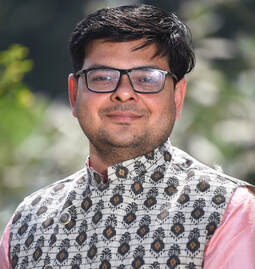
Dr. Krup Vasavda, BAMS, MD (Ayu), Gujarat, India - is working as Associate professor Department of Agadtantra in J S Ayurveda College, Nadiad, Gujarat, India. Presently he is pursuing Ph D from Parul University, Vadodara. He is a Review Board Member Gavin Publication and 8th WAC. He is a well known motivational speaker and trainer. He is an international speaker conducted many sessions in USA, Hungary and Nepal etc. He obtained his UG from Govt. Akhandanand Ayurveda College & Hospital, Ahmedabad, and Gujarat, India. He obtained his PG from Sri Dharmasthala Manjunatheshwara College of Ayurveda & Hospital, Hassan, India. He is expert in yoga and naturopathy. He is a practicing Ayurvedic physician and speciality in Ayurvedic management of Diabetes mellitus. He is a specialist of pain management by various Ayurveda therapies. He has published many papers in nation and international peer reviewed journals. He is Post graduate Diploma in Clinical Research and Clinical Data Management from ICBio, Banglore. Dr. Krup Vasavda is a supporting member of AAPNA, USA.
Topic: An Update on herbs used in the management of male infertility
Abstract: Male infertility can range from neurohormonal imbalances, reproductive tissue disruptions, qualitative and quantitative deterioration of semen to sexual behavioral problems. The global deterioration of male reproductive health is a major concern and the modern therapeutic approaches to combat male infertility are expensive, less accessible, have long term treatment tenure and possess various side effects. Whereas, the herbal therapies, are better positioned to offer more holistic approaches to improve male reproductive health. In Ayurvedic pharmacology, there exists a special group of herbs, classified as vajikarana , which nourishes and stimulates the sexual tissues. This review update concentrates on the Ayurvedic approach to ameliorate male reproductive health referring to some of the most important scientifically tested herbs which have been reported to accentuate male fertility by imposing either stimulating or nourishing effects on the male reproductive organs.
Topic: An Update on herbs used in the management of male infertility
Abstract: Male infertility can range from neurohormonal imbalances, reproductive tissue disruptions, qualitative and quantitative deterioration of semen to sexual behavioral problems. The global deterioration of male reproductive health is a major concern and the modern therapeutic approaches to combat male infertility are expensive, less accessible, have long term treatment tenure and possess various side effects. Whereas, the herbal therapies, are better positioned to offer more holistic approaches to improve male reproductive health. In Ayurvedic pharmacology, there exists a special group of herbs, classified as vajikarana , which nourishes and stimulates the sexual tissues. This review update concentrates on the Ayurvedic approach to ameliorate male reproductive health referring to some of the most important scientifically tested herbs which have been reported to accentuate male fertility by imposing either stimulating or nourishing effects on the male reproductive organs.
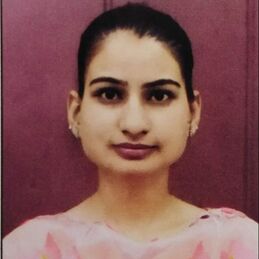
Dr. Sakshi, BAMS, MD (Ayu), Punjab, India - I completed BAMS from Dayanand Ayurvedic College, Jalandhar, Punjab and pursuing MD Ayurveda in same college in Panchakarma Department. I participated in many international and national webinar on infertility, ayurvedic pathology and also attended National CME on Panchakarma organized by RAV. I am a member of Vishwa Ayurved Parishad and supporting member of AAPNA,USA
Topic: Role of Uttar Basti in female infertility
Abstract: Uttar basti is one type of Basti which is all time best for the diseases of female. It tones up reproductive organs and improves the quality of Ambu i.e. cervical mucus. Thus by applying proper drug through Uttar basti, disorders of female reproductive tract can be cured.
Topic: Role of Uttar Basti in female infertility
Abstract: Uttar basti is one type of Basti which is all time best for the diseases of female. It tones up reproductive organs and improves the quality of Ambu i.e. cervical mucus. Thus by applying proper drug through Uttar basti, disorders of female reproductive tract can be cured.
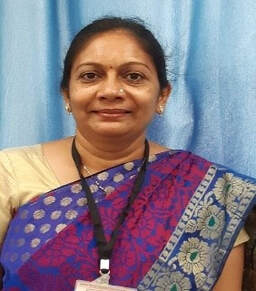
Dr. Shilpa Donga, BAMS, MD (Ayu), PhD (Ayu), Gujarat, India - .Qualified as MD (Ayurved) & Ph.D. (Ayurved) in the subject of Prasutitantra & Streeroga (Gynec & Obs.) from Institute for Postgraduate teaching and research in Ayurveda, Jamnagar. She is presently working as a Professor, at the Department of the Prasuti tantra & Stree roga, Institute of Teaching & Research in Ayurveda (ITRA) (Institute of National Importance), Jamnagar with more than 20 years of experience in the field of Prasuti tantra & Stree roga. She has guided more than 30 PG Scholars and 5 Ph.D. Scholars. Published many research articles in peer-reviewed Journals.
Topic: Role of Panchakarma on female fertility
Abstract: All over the world, the rate of fertility and population growth rate is in a continuous decline, especially in developed countries. Fertility is affected by many factors these days, like stress, pollution, improper diet, and a sedentary lifestyle, the advancement in the age of women attempting to conceive in busy urban societies, and the increased cost of child-rearing in nuclear families is a deterrent factor for the fertility rate. The ayurvedic system of medicine offers Panchakarma procedures to increase fertility by improving the quality of the egg and the environment of the female reproductive system to encourage fertilization and implantation, as well as support the fetus in its growth.
Topic: Role of Panchakarma on female fertility
Abstract: All over the world, the rate of fertility and population growth rate is in a continuous decline, especially in developed countries. Fertility is affected by many factors these days, like stress, pollution, improper diet, and a sedentary lifestyle, the advancement in the age of women attempting to conceive in busy urban societies, and the increased cost of child-rearing in nuclear families is a deterrent factor for the fertility rate. The ayurvedic system of medicine offers Panchakarma procedures to increase fertility by improving the quality of the egg and the environment of the female reproductive system to encourage fertilization and implantation, as well as support the fetus in its growth.
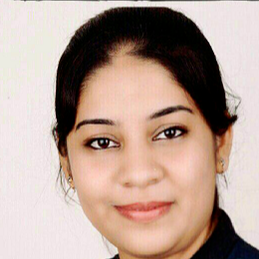
Dr. Nilofar Shaikh, BAMS, MS (Ayu), Gujarat, India - Adept Ayurvedic doctor with clinical experience in field of gynaecology and obstetrics. At present working as Associate professor and consultant in Prasuti tantra evam stree roga department of JS Ayurved Mahavidhyalaya, Nadiad, Gujarat. Successfully treated many cases of infertility, PCOD, uterine fibroid, menstrual disorders and breast diseases. Appointed as PI (Primary Investigator) in two research projects on cervical cell dysplasia and healthy progeny through ayurveda. Delivered many guest lecturers at various international and national platforms like SATCOM, ECHO Ayursajeevaniyam, AAPNA, Indo-Nepal Ayurveda cooperation campaign and Diksha E learning. Published many research articles in peer reviewed scientific journals and appointed as reviewer in J-AIM peer reviewed journal.
Topic: Ayurvedic Management of female infertility (Vandhyatva)
Abstract: Infertility is defines as a failure to achieve a clinical pregnancy after 12 months or more of regular unprotected sexual intercourse. According to Ayurveda four essential factors for conception are Ritu(ovulation period/ Reproductive age),Kshetra (female genital tract),Ambu(nutrition status / hormones) and Bija(Healthy ovum and sperm).Any pathological conditions related to above factors can cause the female infertility. According to Acharya Charaka Matrija, Pitrija, Aatmaja, Satvaja, Satmyaja and Rasaja bhavas are also responsible for formation of Garbha (embryo). In Ayurveda, Shodhana (Panchakarma) and Shamana Chikitsa are indicated in management of female infertility.
Topic: Ayurvedic Management of female infertility (Vandhyatva)
Abstract: Infertility is defines as a failure to achieve a clinical pregnancy after 12 months or more of regular unprotected sexual intercourse. According to Ayurveda four essential factors for conception are Ritu(ovulation period/ Reproductive age),Kshetra (female genital tract),Ambu(nutrition status / hormones) and Bija(Healthy ovum and sperm).Any pathological conditions related to above factors can cause the female infertility. According to Acharya Charaka Matrija, Pitrija, Aatmaja, Satvaja, Satmyaja and Rasaja bhavas are also responsible for formation of Garbha (embryo). In Ayurveda, Shodhana (Panchakarma) and Shamana Chikitsa are indicated in management of female infertility.
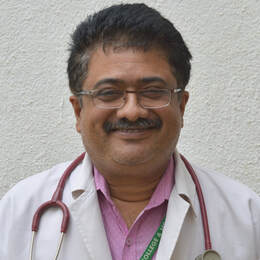
Dr. Sathish, GI, BAMS, MD (Ayu), Karnataka, India - presently working as Associate Professor in Dept. of PG Studies in Roganidan, Jss Ayurveda College & Hospital, Mysore, Karnataka State -completed under graduation from Karnataka University Dharwad, Karnataka in the year 1994 and completed Post Graduation in Kayachikitsa Department in Government Ayurveda Medical College Mysore, Rajiv Gandhi University of Health Sciences. I published more than 30 international scientific papers guiding Post Graduation students since 5 years in the department of Roganidna.
Topic: Concept of Infertility and Ayurveda
Abstract: Infertility is the inability of a person, animal or plant to reproduce by natural means. Acharya have explained four important factors as Garbha Sambhava Samagri that is Ritu, Kshetra, Ambu and Beeja. These are important for conception. Infertility occurs if there is any abnormality in Garbha Sambhava Samagri. In Ayurvedic literature infertility has been mention under the concept of Bheeja, bheeja bhaga and beeja Bhaga Avayava dusti which can be understood in terms of defect in 'oocyte' "sperm', Chromosomes and Genes. Hence it's need of hours to understand the concept of Infertility and Ayurveda for better line of treatment
Topic: Concept of Infertility and Ayurveda
Abstract: Infertility is the inability of a person, animal or plant to reproduce by natural means. Acharya have explained four important factors as Garbha Sambhava Samagri that is Ritu, Kshetra, Ambu and Beeja. These are important for conception. Infertility occurs if there is any abnormality in Garbha Sambhava Samagri. In Ayurvedic literature infertility has been mention under the concept of Bheeja, bheeja bhaga and beeja Bhaga Avayava dusti which can be understood in terms of defect in 'oocyte' "sperm', Chromosomes and Genes. Hence it's need of hours to understand the concept of Infertility and Ayurveda for better line of treatment
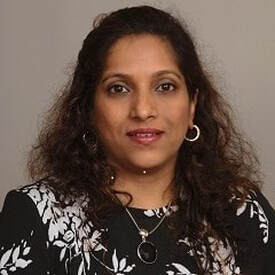
Dr. Anjum G Nadaf, BAMS, LMT, RAD, FAAPNA, RYT-500, New Jersey, USA - is classically trained Ayurvedic Vaidya Practicing in NJ, USA. She is the founder and director of Anjum Ayurveda LLC. She completed Bachelor of Ayurvedic Medicine and Surgery (BAMS) years of Ayurvedic studies from Rajiv Gandhi University, Bangalore. India. F.A.A.P.N.A (Fellow of Association of Ayurvedic Professionals of North America), LMT(Licensed Massage Therapist) 500-RYT. Recipient of ATREYA AWARD 2020 for excellence in clinical practice awarded by AAPNA. She is an International renowned speaker educating community and bridging the gap between east and the west. Registered Ayurvedic doctor (RAD) from AAPNA and a New Jersey state director AAPNA
Topic: Ayurvedic Management of Infertility with PCOS
Abstract: Polycystic ovary syndrome (PCOS) is a health problem that affects 1 in 10 women of childbearing age. Women with PCOS have a hormonal imbalance and metabolism problems that may affect their overall health and appearance. PCOS is also a common and treatable cause of infertility. Imbalance in reproductive hormones creates problems in the ovaries these ovaries make the egg that is released each month as part of a healthy menstrual cycle. With PCOS, the egg may not develop as it should or it may not be released during ovulation as it should be. Ayurveda can help ovulate and to raise your chance of getting pregnant. By following simple ayurvedic principles and guidelines there are more chances to become pregnant and experience the motherhood.
Topic: Ayurvedic Management of Infertility with PCOS
Abstract: Polycystic ovary syndrome (PCOS) is a health problem that affects 1 in 10 women of childbearing age. Women with PCOS have a hormonal imbalance and metabolism problems that may affect their overall health and appearance. PCOS is also a common and treatable cause of infertility. Imbalance in reproductive hormones creates problems in the ovaries these ovaries make the egg that is released each month as part of a healthy menstrual cycle. With PCOS, the egg may not develop as it should or it may not be released during ovulation as it should be. Ayurveda can help ovulate and to raise your chance of getting pregnant. By following simple ayurvedic principles and guidelines there are more chances to become pregnant and experience the motherhood.
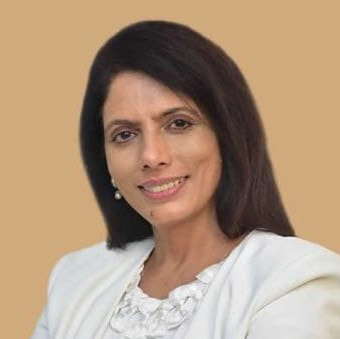
Dr. Smita Naram, Maharashtra, India - Founder of the Ayushakti Group Companies and a world-renowned pulse reader and detoxification specialist and master trainer
of the Practitioner’s.
• Ayushakti has helped 150,000 people worldwide in more than 108 countries.
• There are 150 clinic across the world
• Published Research papers in peer view journal on depression, anxiety, dermatitis, Arthritis, asthma, diabetes and infertility.
• Published a book “Your Health in your Hand” and 9 booklet.
• I have given one on one more than 200,000 consultation.
• Featured on multiple US based Radio and TV Show and print media in 160+countries.
Topic: Synopsis of Research published in Netherlands University on Infertility demonstrating 42% result of Ayurveda vs. 18% result of Conventional Medicine
Abstract: 2200 couples were observed for 1 year of infertox treatment of Ayushakti including diet, home remedies, panchakarma detox, herbal formulas and lifestyle changes and the conclusion of result was compared with conventional allopathic result in the year 1997 and published in Netherlands University by Dr. Victor Manhave. The cases included fallopian tube blocks, ovarian dysfunction, infertility of unknown etiology, Oligospermia, Azoospermia, and habitual miscarriages. In this presentation, I will present a basic outline treatment for fibroids, habitual miscarriage, fallopian tube blocks, ovarian dysfunction and male infertility including diet, lifestyle, herbal formula, home remedies and panchakarma detox.
of the Practitioner’s.
• Ayushakti has helped 150,000 people worldwide in more than 108 countries.
• There are 150 clinic across the world
• Published Research papers in peer view journal on depression, anxiety, dermatitis, Arthritis, asthma, diabetes and infertility.
• Published a book “Your Health in your Hand” and 9 booklet.
• I have given one on one more than 200,000 consultation.
• Featured on multiple US based Radio and TV Show and print media in 160+countries.
Topic: Synopsis of Research published in Netherlands University on Infertility demonstrating 42% result of Ayurveda vs. 18% result of Conventional Medicine
Abstract: 2200 couples were observed for 1 year of infertox treatment of Ayushakti including diet, home remedies, panchakarma detox, herbal formulas and lifestyle changes and the conclusion of result was compared with conventional allopathic result in the year 1997 and published in Netherlands University by Dr. Victor Manhave. The cases included fallopian tube blocks, ovarian dysfunction, infertility of unknown etiology, Oligospermia, Azoospermia, and habitual miscarriages. In this presentation, I will present a basic outline treatment for fibroids, habitual miscarriage, fallopian tube blocks, ovarian dysfunction and male infertility including diet, lifestyle, herbal formula, home remedies and panchakarma detox.
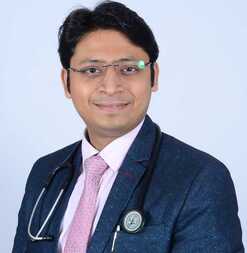
Dr. Prashant Jain, BAMS, MD (Ayu), Delhi, India - is a Classical Ayurveda practitioner located in Delhi, India. Who have learnt his vast knowledge of Ayurveda through ancient Guru Shishya Parampara by various renowned Guru’s of Ayurveda and validates his educational credentials by obtaining Masters & pursuing PhD in field of Ayurveda. He is also one among few Certified Ayurvedic Medical Cannabis doctors of India.
He has received many awards in field of Ayurveda.
1. Rising Star of Ayurveda by Dr. Vashishth Ayu Remedies.
2. Appreciation by Bhavishya Foundation for extraordinary work in field of Ayurveda.
3. Honoured by DABUR India for setting milestones in Ayurvedic treatment of Kidney Disorders.
4. Certificate of appreciation by SDM Ayurveda for excellence in delivering Ayurveda to the community.
He has established Nirmal Ayurved inDdelhi in year 2019 with a view to provide authentic classical ayurvedic treatment to community.
Dr. Prashant Jain is Founder of Ayu Fertility a specialized Fertility & related treatment center in Delhi.
He has also worked as Ayurved Consultant at Central Ayurveda Research Institute – Delhi a unit of CCRAS, Ministry of AYUSH, Gov. of India.
Dr. Prashant is in the field of Ayurveda since last 12 years & providing Ayurvedic Consultation and Treatment to society since 2014. During this tenure he have successfully treated more than 5k patients in India and abroad through Ayurveda with a high Success Rate.
He is also part of Continuing Ayurveda Education in association with different Ayurveda Companies.
Topic: Stress and Fertility
Abstract: The relationship between fertility, related issues & stress has been discussed for years. Women with fertility related issues report elevated levels of anxiety and depression, so it is clear that infertility causes stress. What is need to be discussed, is whether stress leads to fertility related issues or not? Also the impact of stress on treatment outcome is difficult to assess due to a number of factors, which includes inaccurate self-reporting and feelings of increased optimism at the time of treatment. However, the most recent studies have documented the efficacy of psychological interventions as being associated with significant increases in pregnancy rates.
He has received many awards in field of Ayurveda.
1. Rising Star of Ayurveda by Dr. Vashishth Ayu Remedies.
2. Appreciation by Bhavishya Foundation for extraordinary work in field of Ayurveda.
3. Honoured by DABUR India for setting milestones in Ayurvedic treatment of Kidney Disorders.
4. Certificate of appreciation by SDM Ayurveda for excellence in delivering Ayurveda to the community.
He has established Nirmal Ayurved inDdelhi in year 2019 with a view to provide authentic classical ayurvedic treatment to community.
Dr. Prashant Jain is Founder of Ayu Fertility a specialized Fertility & related treatment center in Delhi.
He has also worked as Ayurved Consultant at Central Ayurveda Research Institute – Delhi a unit of CCRAS, Ministry of AYUSH, Gov. of India.
Dr. Prashant is in the field of Ayurveda since last 12 years & providing Ayurvedic Consultation and Treatment to society since 2014. During this tenure he have successfully treated more than 5k patients in India and abroad through Ayurveda with a high Success Rate.
He is also part of Continuing Ayurveda Education in association with different Ayurveda Companies.
Topic: Stress and Fertility
Abstract: The relationship between fertility, related issues & stress has been discussed for years. Women with fertility related issues report elevated levels of anxiety and depression, so it is clear that infertility causes stress. What is need to be discussed, is whether stress leads to fertility related issues or not? Also the impact of stress on treatment outcome is difficult to assess due to a number of factors, which includes inaccurate self-reporting and feelings of increased optimism at the time of treatment. However, the most recent studies have documented the efficacy of psychological interventions as being associated with significant increases in pregnancy rates.
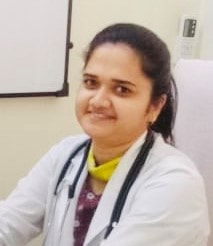
Dr. Swarda Uppin, BAMS, MD (Ayu), Karnataka, India - is presently working as an Assistant Professor and Consultant in the Department of Rasayana Evam Vajikarana (Rejuvenation & Aphrodisiac), at KAHER’s Shri BMK Ayurveda Mahavidyalaya, Belagavi, Karnataka, India. She has pursued masters from KLE Academy of Higher Education and Research, Belagavi (2019). Been a speaker at various scientific platforms for promoting Ayurveda lines of Rejuvenation and Fertility. She has UG & PG teaching, clinical and research experience in guiding post graduate dissertations, investigator in research projects and has a few publications to her credit.
Topic: An Ayurvedic Approach to Immunological Infertility: Clinical Landings!
Abstract: Infertility is a condition of the reproductive system characterized by failure to achieve a clinical pregnancy after 12 months or more of regular unprotected sexual intercourse. The increasing prevalence and clinical data signifies the involvement of both partners, contributing about 25-40%. In recent times, the incidence of immunological factor has been an addition in understanding infertility. Immunological infertility is an autoimmune response associated with an imbalance of various immune components with the development of autoantibodies directed against normal host antigens. The similar characteristic features along with appropriate treatment has been described in the ancient science of Indian medicine. Ayurveda beautifully explains the concept of Vajikarana, which checks various aspects of reproductive health, particularly: foiling the damage owing to its antioxidant effect, and help detox, restore and regenerate healthy fertile cells. This source shall emphasize on the clinical aspects and treatment modalities of Immunological Infertility that have extensively supported in the process of achieving a healthy pregnancy and new life.
Topic: An Ayurvedic Approach to Immunological Infertility: Clinical Landings!
Abstract: Infertility is a condition of the reproductive system characterized by failure to achieve a clinical pregnancy after 12 months or more of regular unprotected sexual intercourse. The increasing prevalence and clinical data signifies the involvement of both partners, contributing about 25-40%. In recent times, the incidence of immunological factor has been an addition in understanding infertility. Immunological infertility is an autoimmune response associated with an imbalance of various immune components with the development of autoantibodies directed against normal host antigens. The similar characteristic features along with appropriate treatment has been described in the ancient science of Indian medicine. Ayurveda beautifully explains the concept of Vajikarana, which checks various aspects of reproductive health, particularly: foiling the damage owing to its antioxidant effect, and help detox, restore and regenerate healthy fertile cells. This source shall emphasize on the clinical aspects and treatment modalities of Immunological Infertility that have extensively supported in the process of achieving a healthy pregnancy and new life.
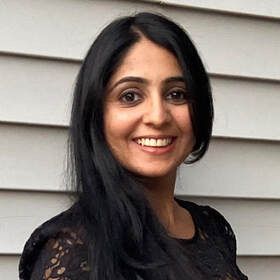
Dr. Prathibha Balan, BAMS, MHA, RAD, LMT, Texas, USA - has completed her BAMS from Santhigiri Ayurveda Medical College, Kerala. She immigrated to the United States of America in 2010 and pursued her love for Ayurveda in multiple ways and pursued a diploma in clinical weight loss management and massage therapy and lymphatic drainage. She has served as yoga and wellness advisor in Minneapolis and further took upon the role of Director of Interns at the Bodhananda Vedic Institute in Kalamazoo, Michigan. She is an entrepreneur, with her zeal to provide holistic ayurvedic wellness, she had established India Veda in Grand Rapids, Michigan, USA providing ayurvedic wellness consultancy, therapies, yoga and bodyworks including Pachakarma and other modalities of massage therapy including lymphatic drainage. After a break to provide care of her newborn daughter, she had completed Master of Health Administration from Rutgers university, New Jersey which has helped her to get ready to start thinking of establishing a venture to pursue her passion in Ayurveda. Right now, she owns VedicSparsa LLC and lives in Flower Mound, Texas, USA.
Topic: Recurrent abortion/miscarriage types, causes, and management
Abstract: Recurrent Pregnancy Loss is an important reproductive health issue “Garbha stravi vandhya” is a term used in ayurveda for the infertility due to recurrent habitual abortion in first trimester. Garbha Vyapad or miscarriage is historically defined as sequence of three or more consecutive spontaneous abortions before 20weeks. This distressing problem is affecting approximately 1% of all women of reproductive age. The risk is increased with each successive abortion reaching over 30% after 3 consecutive cases. (Patil M &Pawar A,2019). According to Ayurveda the improper food and lifestyle habits is mentioned as factors responsible for abnormality in the fetus, the doshas get vitiated and the normal functions are disturbed resulting in the expulsion of the fetus. Management in Ayurveda includes use of ayurvedic formulations having the properties of lekhaniya, ushna, ruksha, tikshana, vatanulomana, garbha shatan and garbha shodhan along with addressing their mental well-being. All these properties cause uterine contraction and thus proper evacuation of the remaining of the pregnancy, and minimizes the blood loss and reduces the pain.After this medicines are given for cleaning the uterus along with amapachana drugs .These drugs clear the doshas-dhatu and kleda thus balancing the agni, dosha, dhatu and helps in the quick recovery of the person.
Topic: Recurrent abortion/miscarriage types, causes, and management
Abstract: Recurrent Pregnancy Loss is an important reproductive health issue “Garbha stravi vandhya” is a term used in ayurveda for the infertility due to recurrent habitual abortion in first trimester. Garbha Vyapad or miscarriage is historically defined as sequence of three or more consecutive spontaneous abortions before 20weeks. This distressing problem is affecting approximately 1% of all women of reproductive age. The risk is increased with each successive abortion reaching over 30% after 3 consecutive cases. (Patil M &Pawar A,2019). According to Ayurveda the improper food and lifestyle habits is mentioned as factors responsible for abnormality in the fetus, the doshas get vitiated and the normal functions are disturbed resulting in the expulsion of the fetus. Management in Ayurveda includes use of ayurvedic formulations having the properties of lekhaniya, ushna, ruksha, tikshana, vatanulomana, garbha shatan and garbha shodhan along with addressing their mental well-being. All these properties cause uterine contraction and thus proper evacuation of the remaining of the pregnancy, and minimizes the blood loss and reduces the pain.After this medicines are given for cleaning the uterus along with amapachana drugs .These drugs clear the doshas-dhatu and kleda thus balancing the agni, dosha, dhatu and helps in the quick recovery of the person.
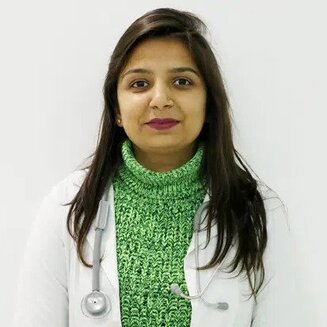
Dr. Shivani Sharma, BAMS, Punjab, India -is trained ayurveda expert Working for Planet Ayurveda since August, 2020 till Present under Guidance of Dr. Vikram Chauhan.
Topic: Natural fertility boosters---The ayurvedic perspective
Abstract: Ayurveda is an holistic science which holds solution for every problem. Being Fertile nowadays is very difficult as this quote says:- "What seemed like such a simple desire has become an impossible quest". So In today's topic we will cover What are the natural fertility boosters as per Ayurveda including diet and herbs. Along with that we will also see what should be the effective management for associated fertility issues.
Topic: Natural fertility boosters---The ayurvedic perspective
Abstract: Ayurveda is an holistic science which holds solution for every problem. Being Fertile nowadays is very difficult as this quote says:- "What seemed like such a simple desire has become an impossible quest". So In today's topic we will cover What are the natural fertility boosters as per Ayurveda including diet and herbs. Along with that we will also see what should be the effective management for associated fertility issues.
Privacy Policy |
© COPYRIGHT 2018. ALL RIGHTS RESERVED.
|
Informed Consent & Disclaimer: Information on this web site is provided for informational and educational purposes only and is not intended as a substitute for the advice provided by your physician or other healthcare professional or any information contained on or in any product label or packaging. Do not use the information on this web site for diagnosing or treating a health problem or disease, or prescribing medication or other treatment. Always speak with your physician or other healthcare professional regarding any health concerns and before taking any medication or nutritional, herbal or homeopathic supplement, or using any treatment for a health problem. Information and statements regarding dietary supplements have not been evaluated by the Food and Drug Administration and are not intended to diagnose, treat, cure, or prevent any disease.
- Home
- Shop
- Study Ayurveda
- Conferences
-
Past Conferences
- 61 Conference Ayurveda & Parkinson's Disease
- 60 Conference Ayurveda & Metabolic Disorders
- 59 Conference Ayurveda & Arthritis
- 58 Conference Ayurveda & Allergies
- 57 Conference Child Health Care Through Ayurveda
- 56 Conference Ayurveda for Women
- 55 Conference Ayurveda & Emotions
- 54 Conference Ayurveda & Addictions
- 53 Conference Ayurveda for a Healthy World
- 52 Conference Ayurveda & Eye Care
- 51 Conference Ayurveda & Stress Management
- 50 Conference Ayurveda & Marma Therapy
- 49 Conference Ayurveda & Aroma Therapy
- 48 Conference Ayurveda & Fertility
- 47 Conference Ayurveda for Healthy Living
- 46 Conference Ayurveda & Thyroid Care
- 45 Conference Ayurveda & Kidney Care
- 44 Conference Ayurveda & Heart Care
- 43 Conference Ayurveda & Gut Health
- 42 Conference Ayurveda & Liver Care
- 41 Conference Ayurveda & Lung Care
- 40 Conference Ayurveda & Skin Care
- 39 Conference Ayurveda & Pain Management
- 38 Conference Clinical Ayurveda
- 37 Conference Ayurveda & the Mind
- 36 Conference Ashtanga Ayurveda
- 35 Conference Ayurveda & Epigenetics
- 34 Conference: Evedence Based Ayurveda
- 33 Conference: Ayurvedic Pediatrics
- 32 Conference Ayurveda: Autoimmune & Metabolic Disorders
- 31 Conference AyurYoga for Radiant Health - Cruise
- 30 Conference Ayurveda, Yoga, Spirituality
- 29th Conference Mother & Child Healthcare
- 28 Conference Ayurveda & Panchakarma
- 27 Conference Ayurveda for All
- 26 Conference Ayurveda & Women's Health
- 25 Conference Silver Jubilee
- 24 Conference Kayachikitsa & Panchakarma
- 23 Conference Ayurveda for Health
- 22 Conference Home Remedies
- 21 Conference Ayurveda & Psychology
- 20 Conference Panchanga Veda
- 19 Conference Integrated Medicine
- 18 Conference Herbs & Minerals
- 17 Conference Food & Nutrition
- 16 Conference Shalakya Manthana
- 15 Conference Autoimmune Disorders
- 14 Conference Consciousness
- 13 Conference Energy Medicine
- 12 Conference Spirituality & Healing
- Related

